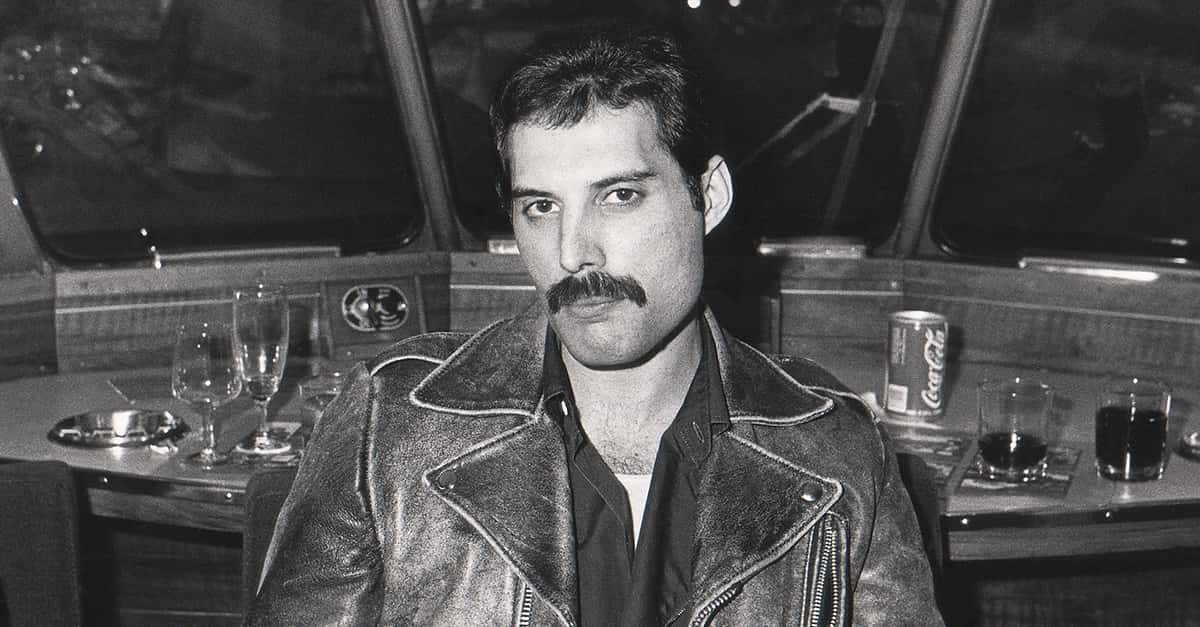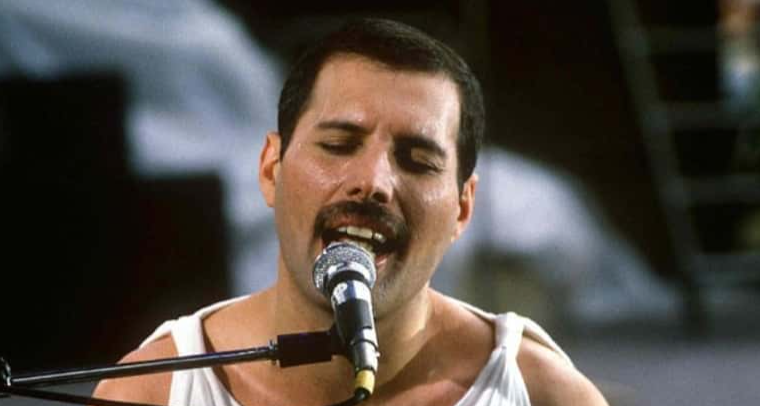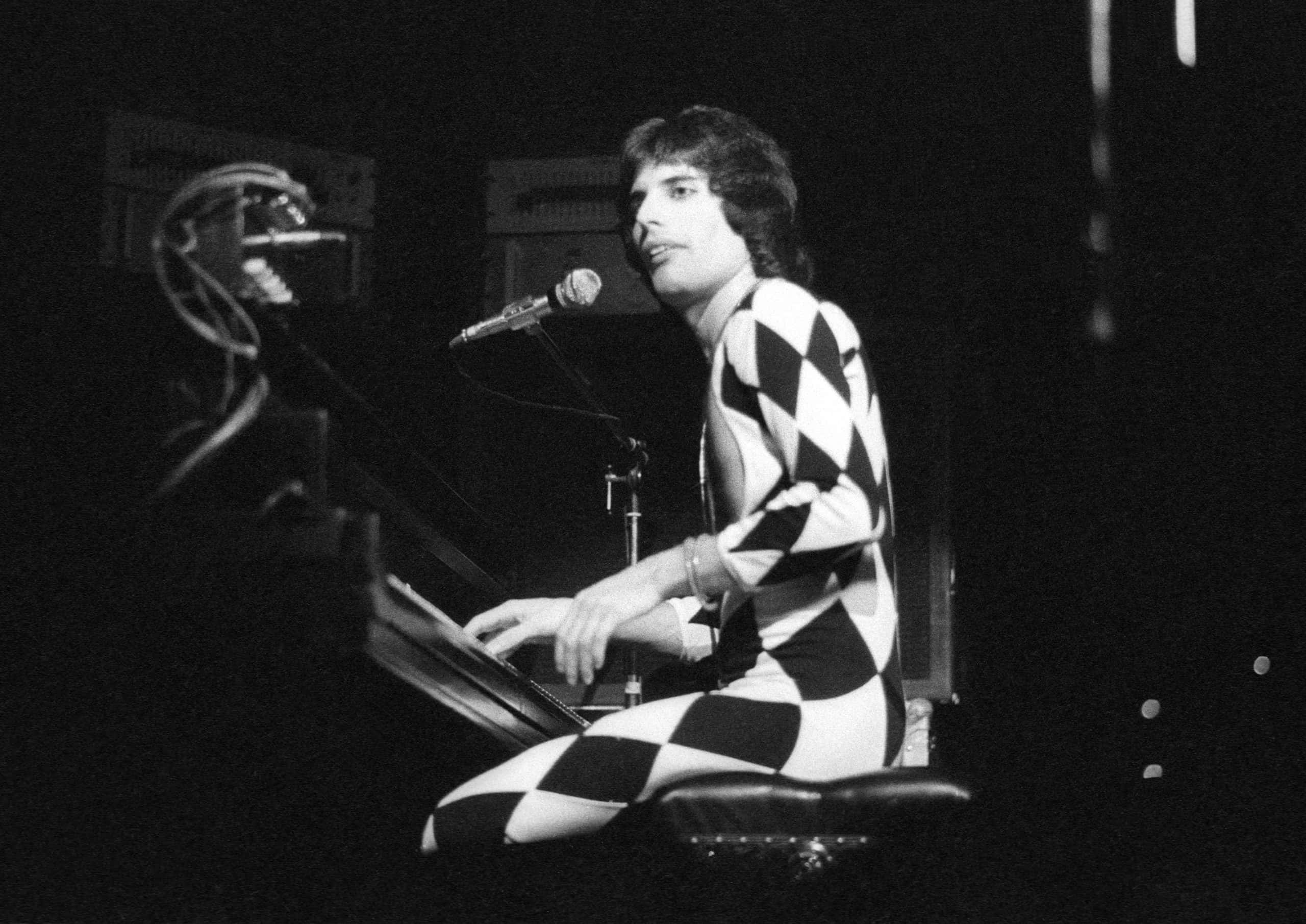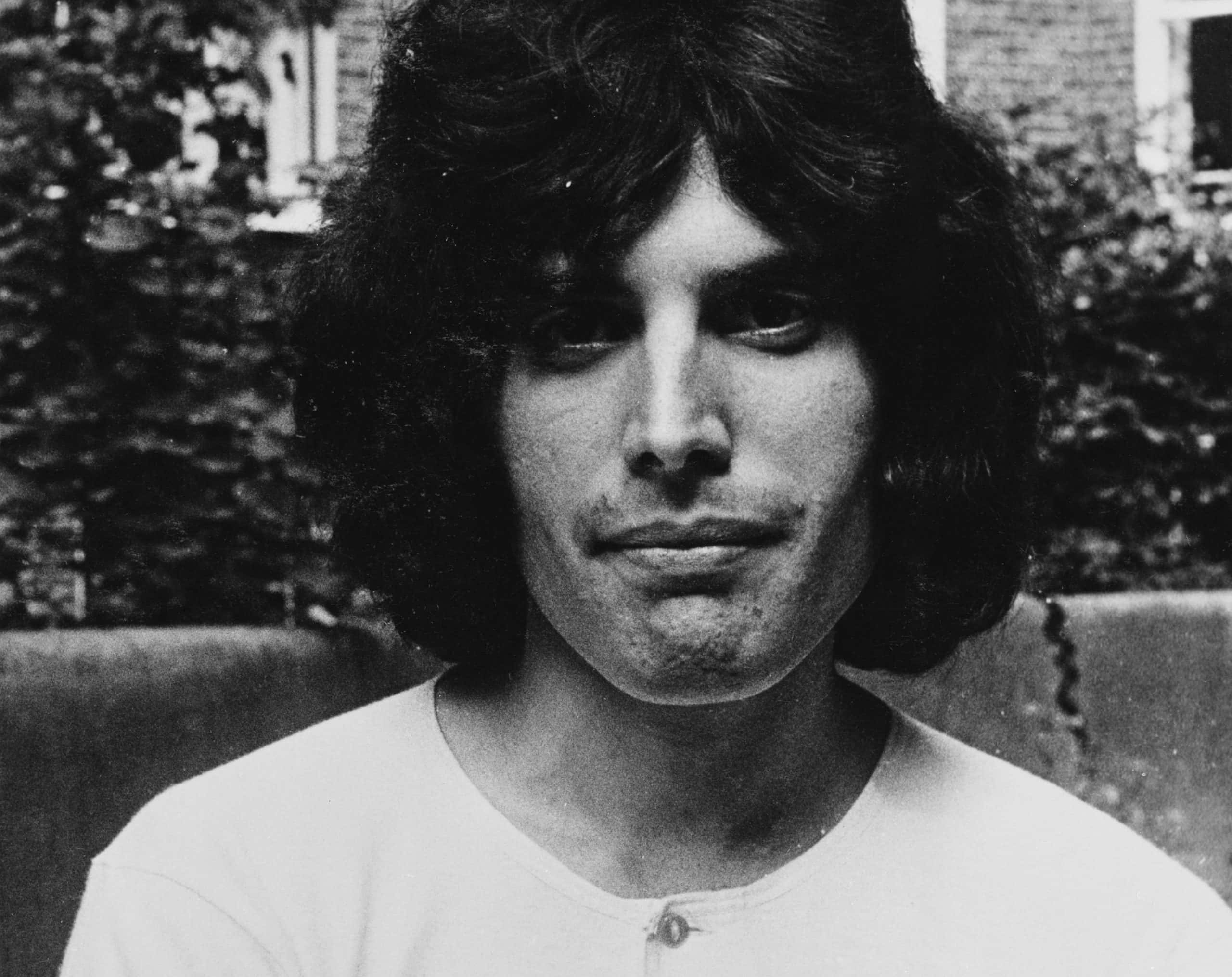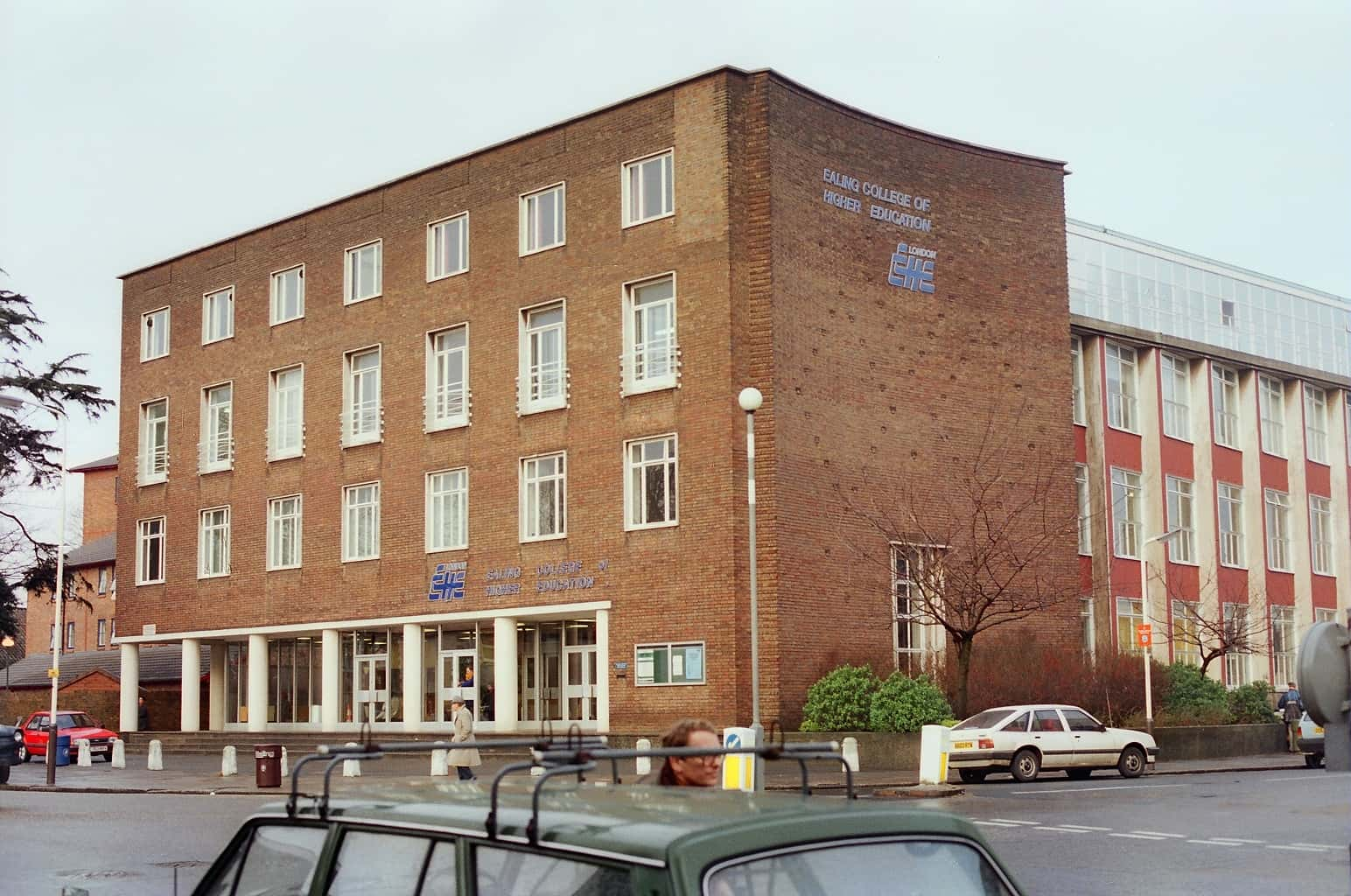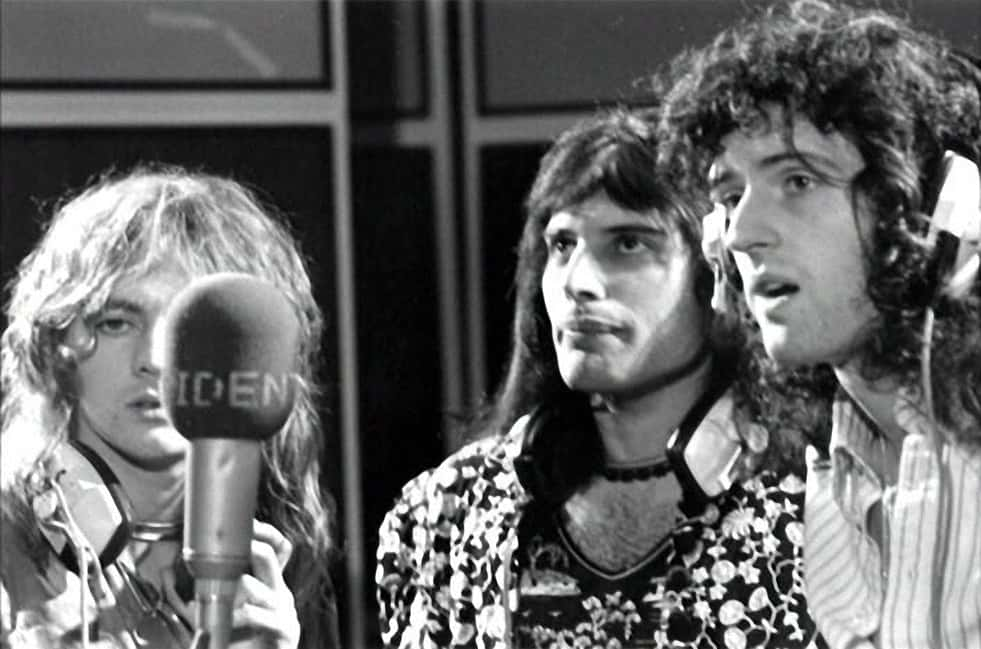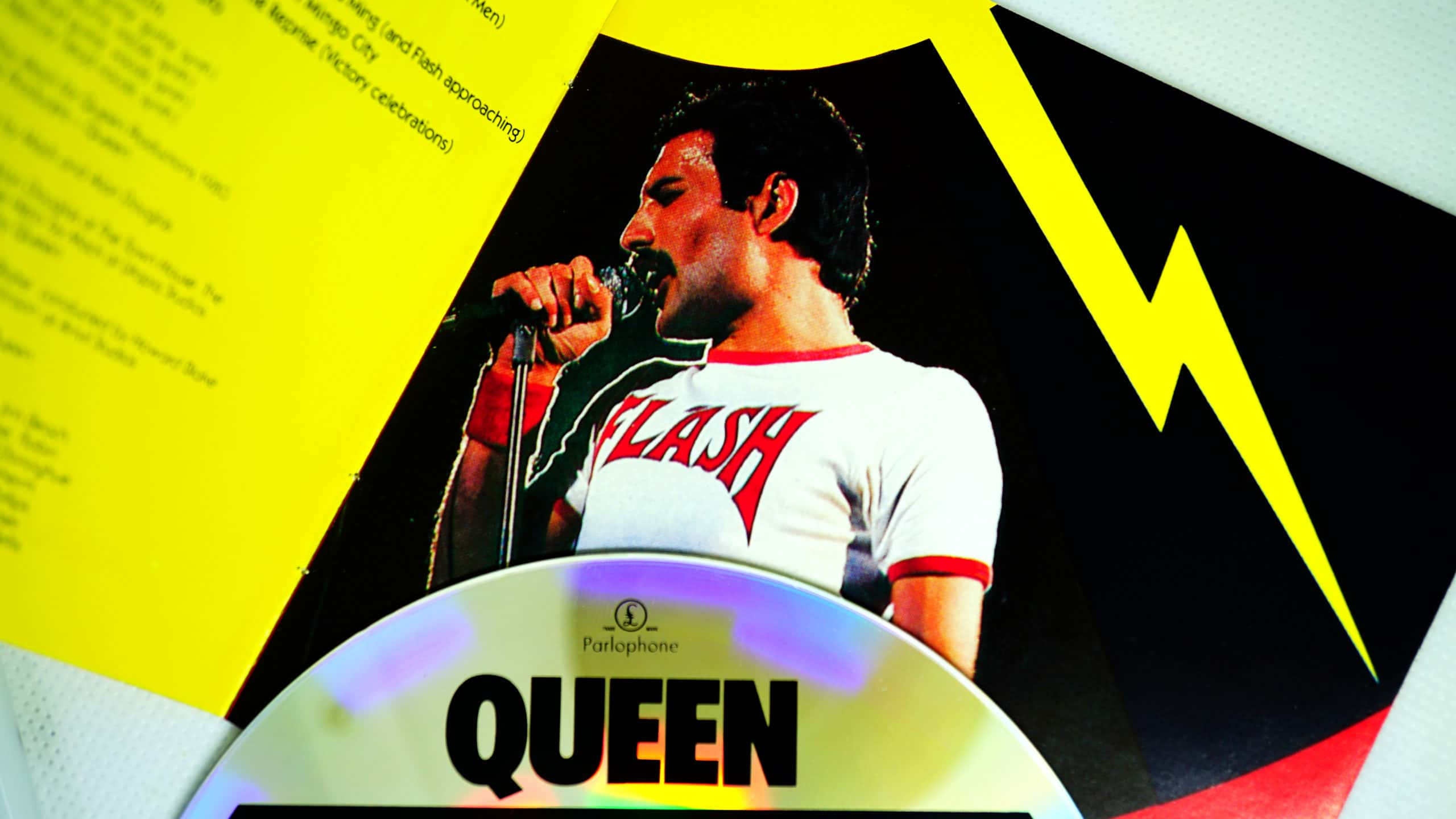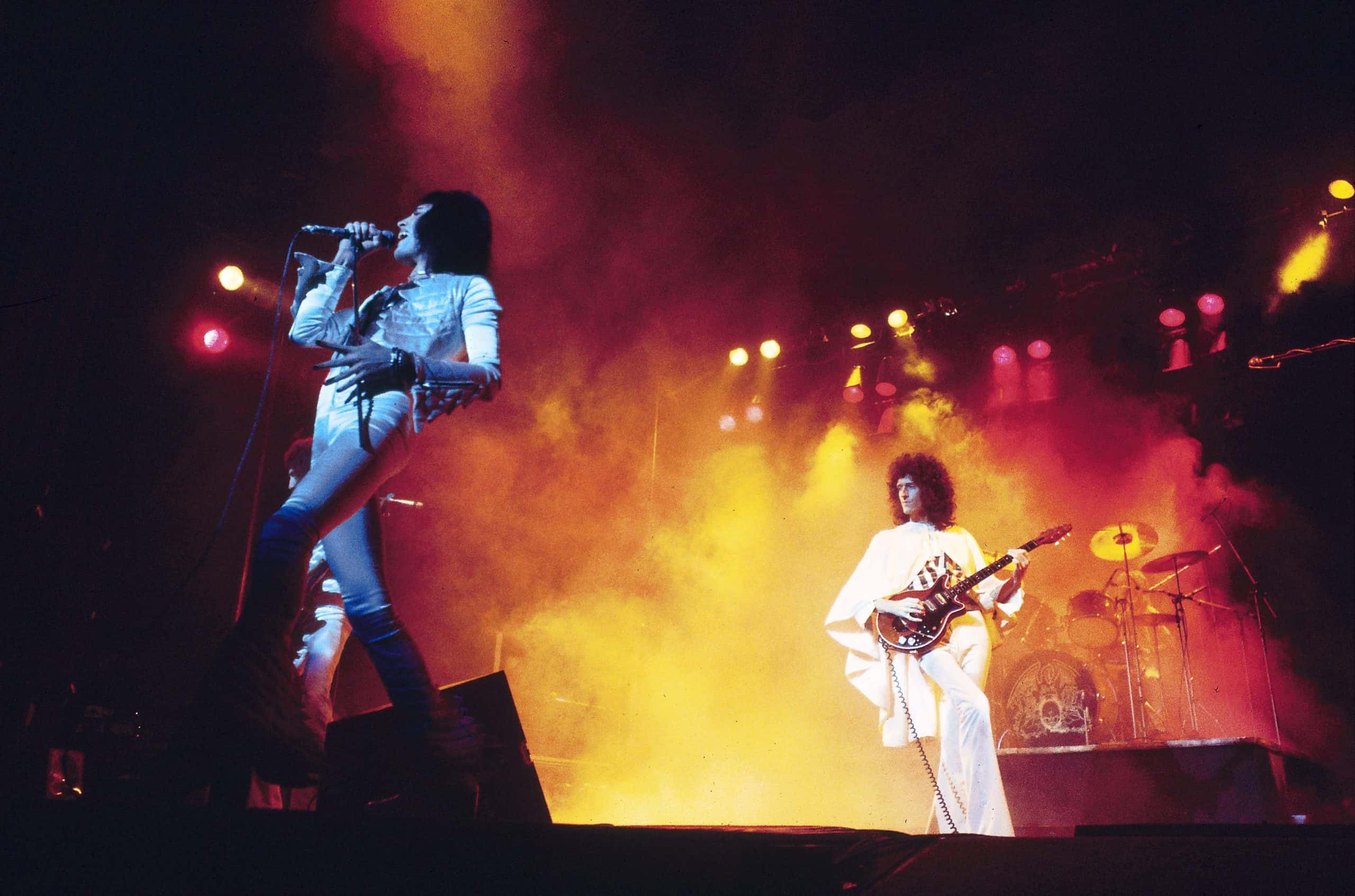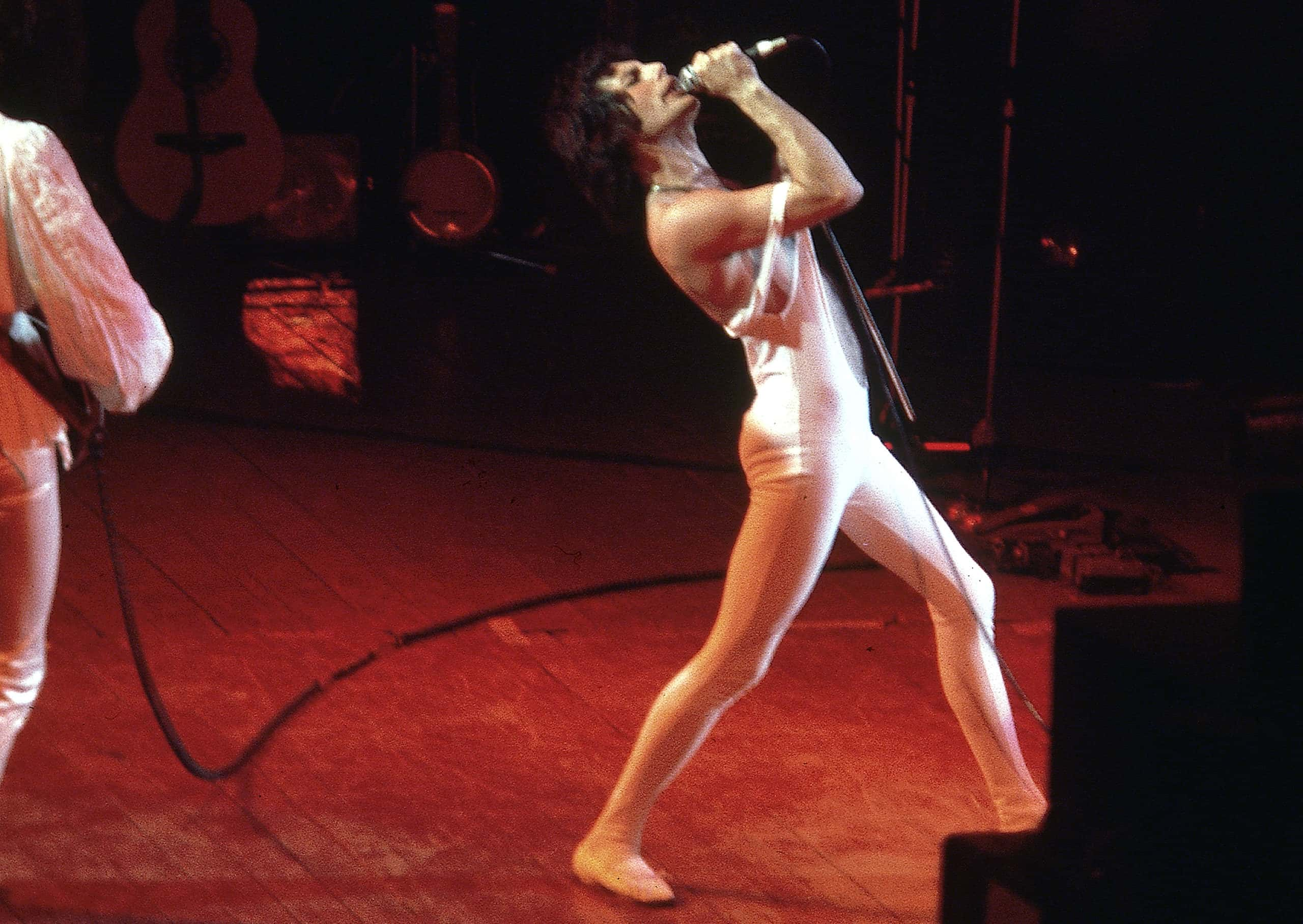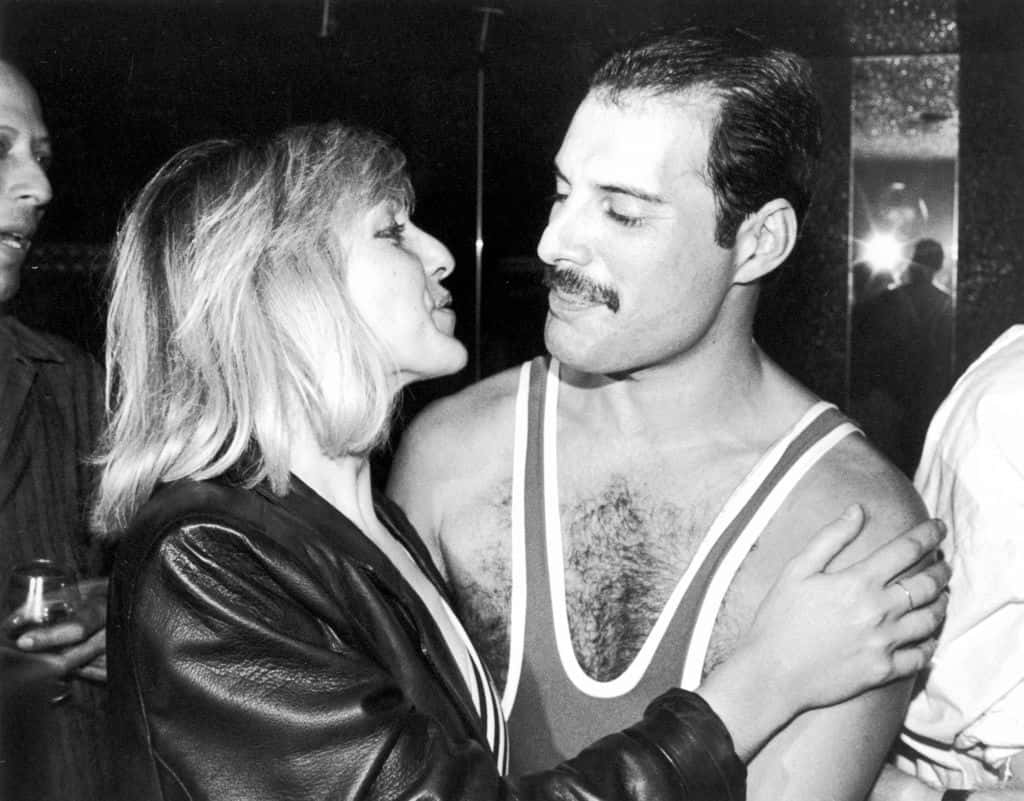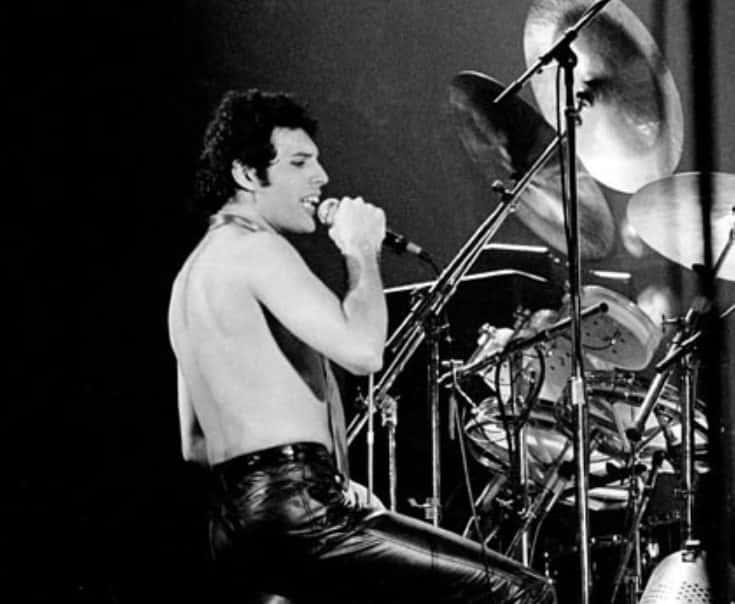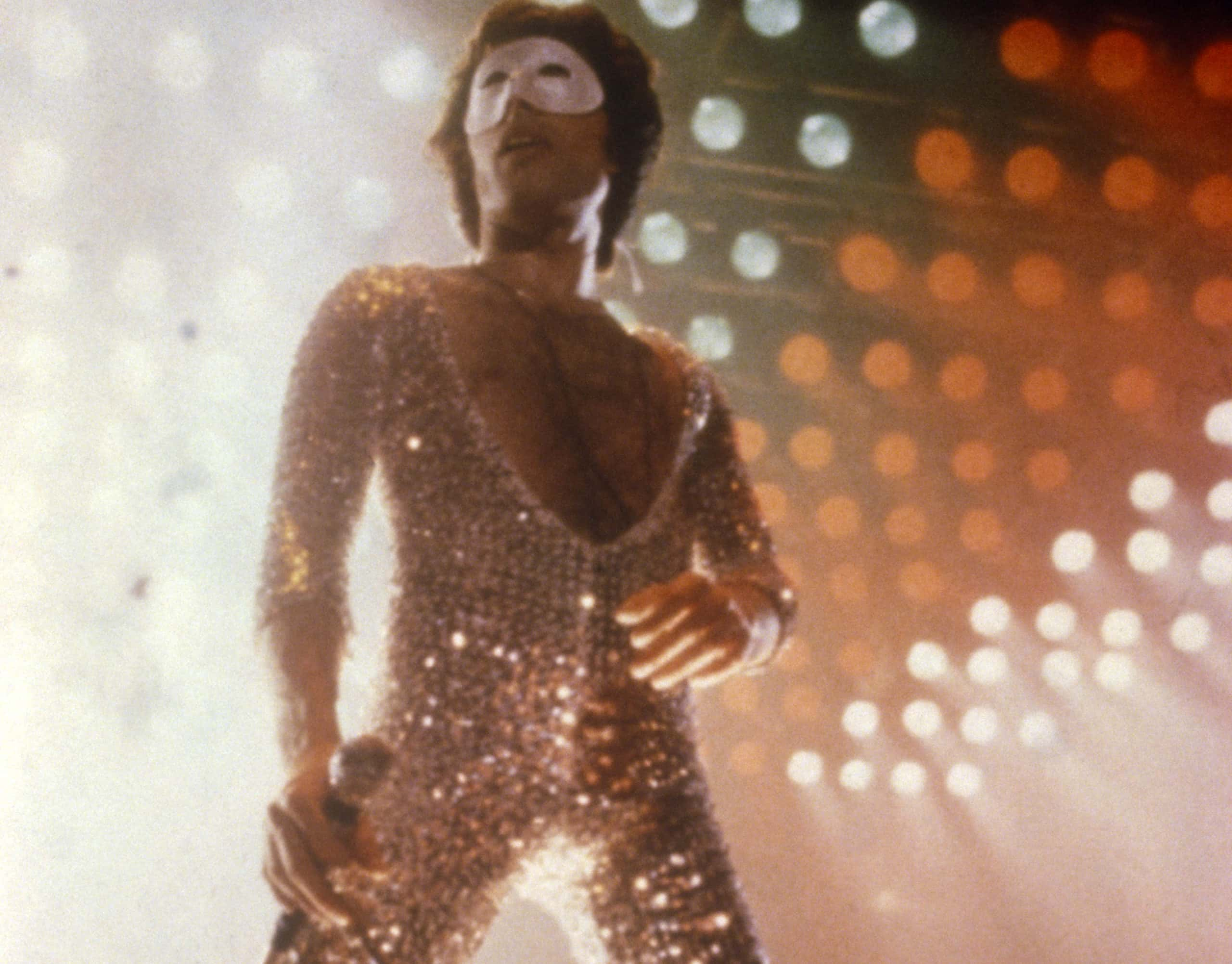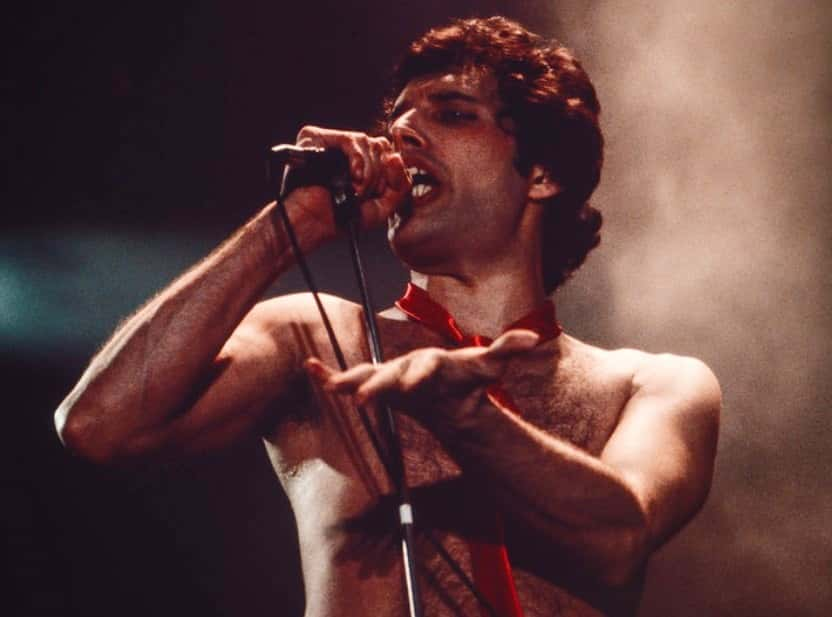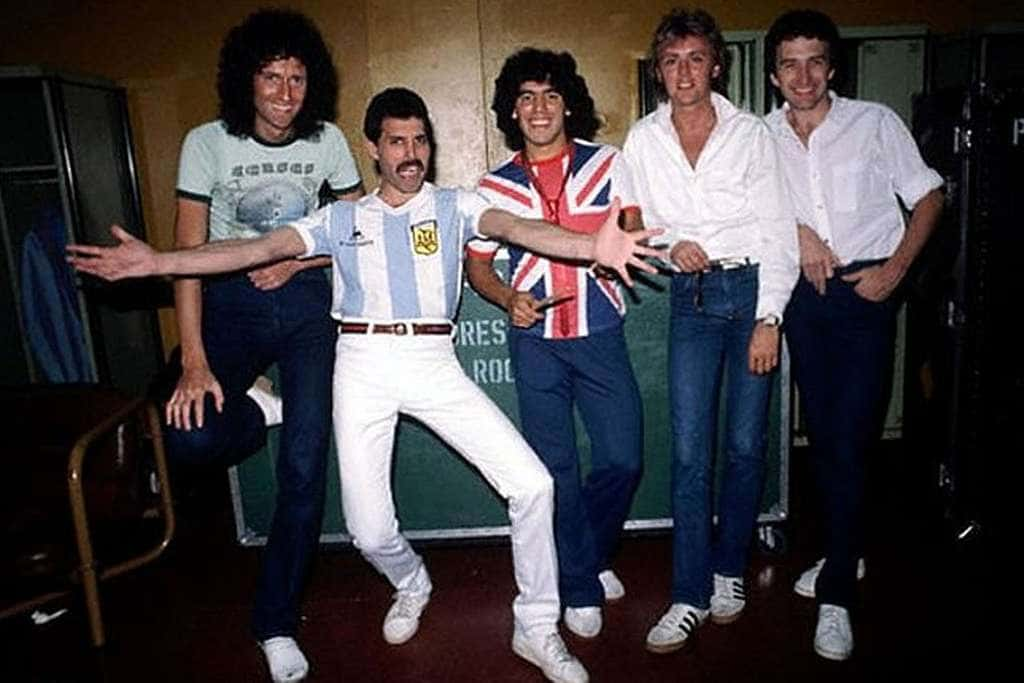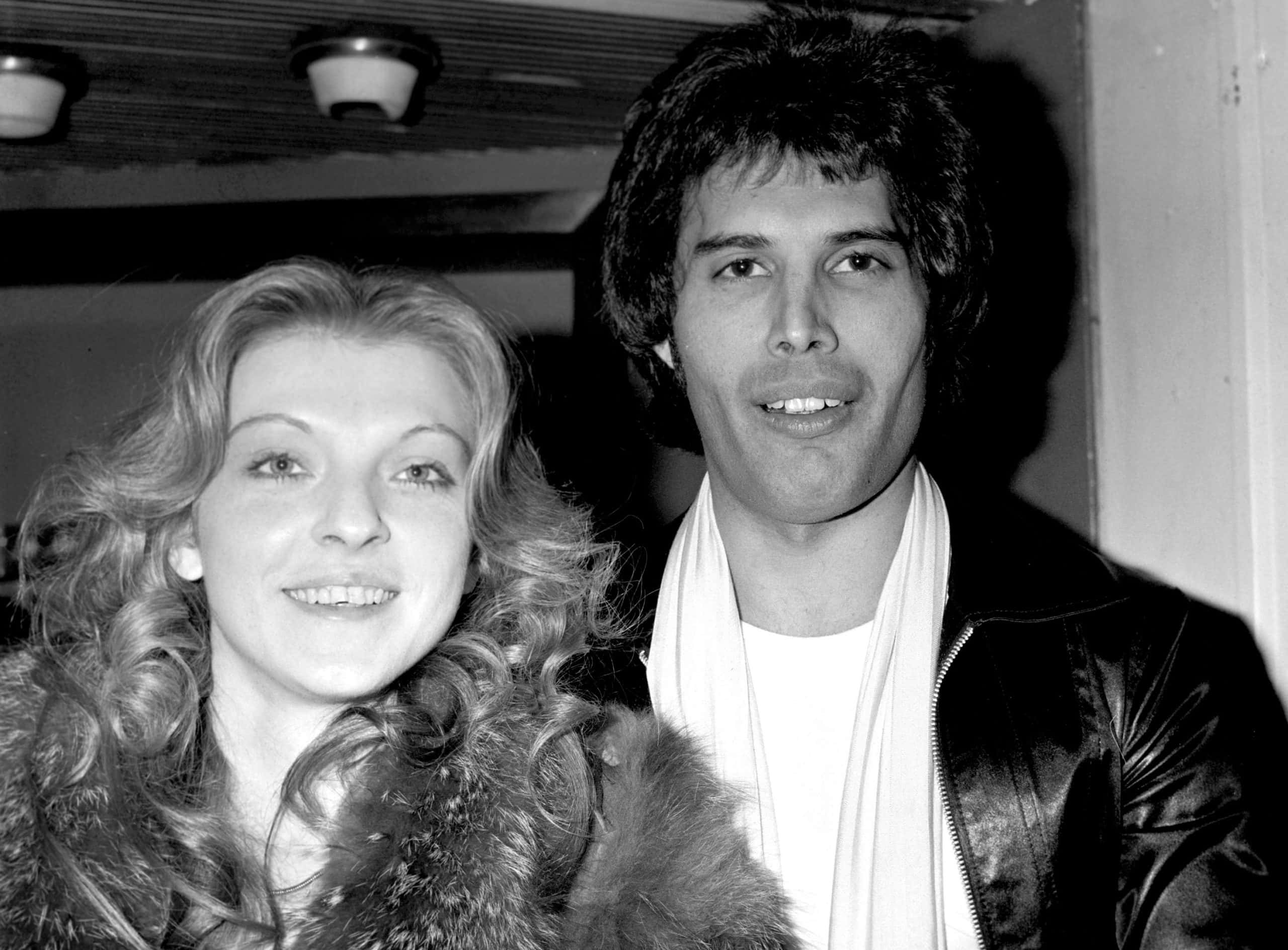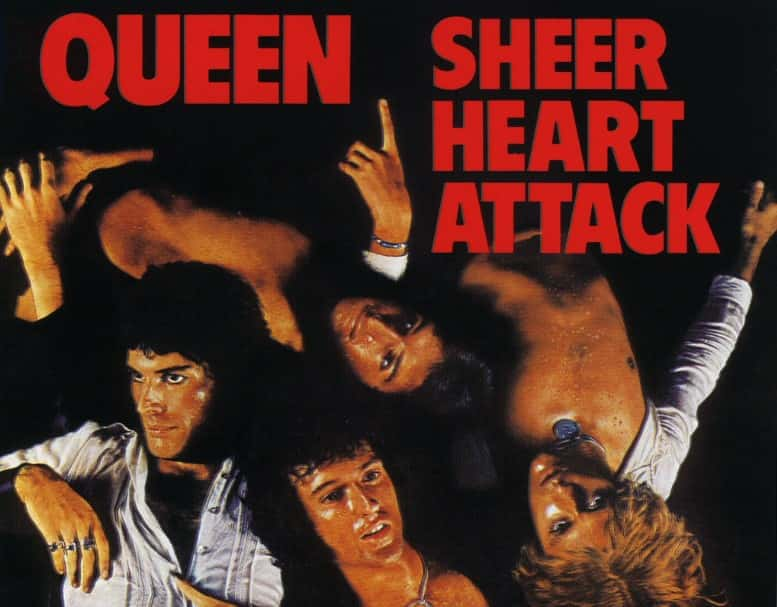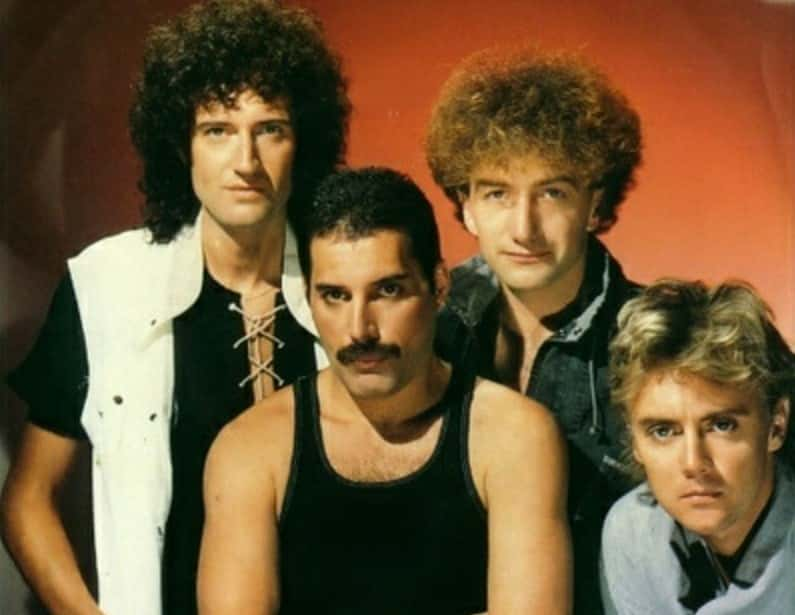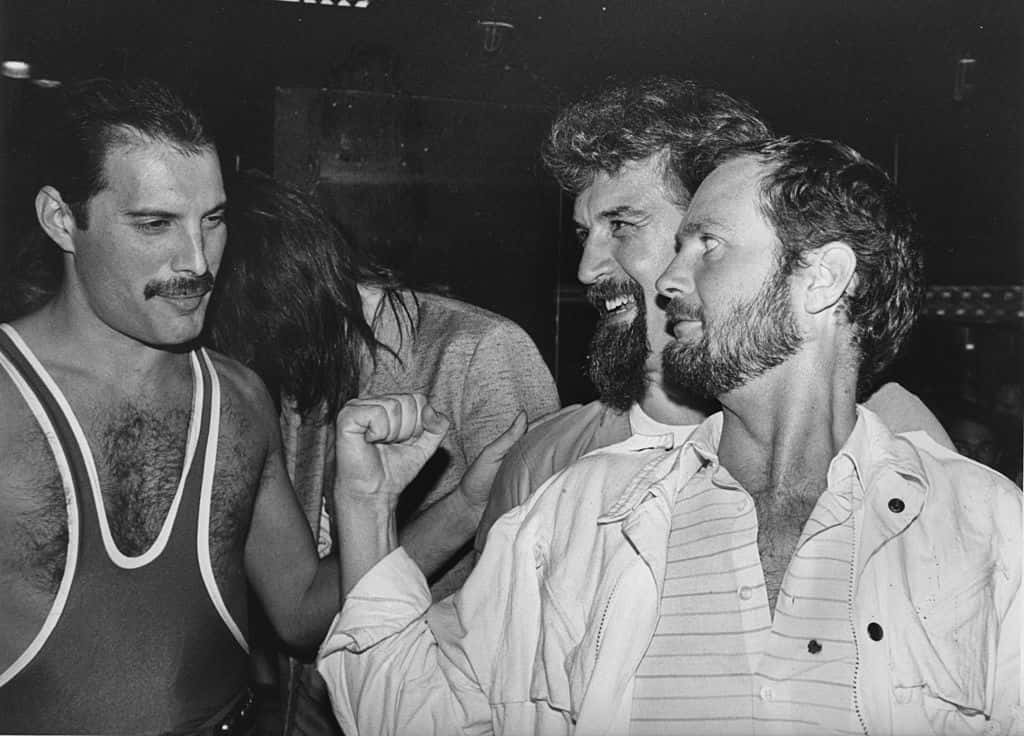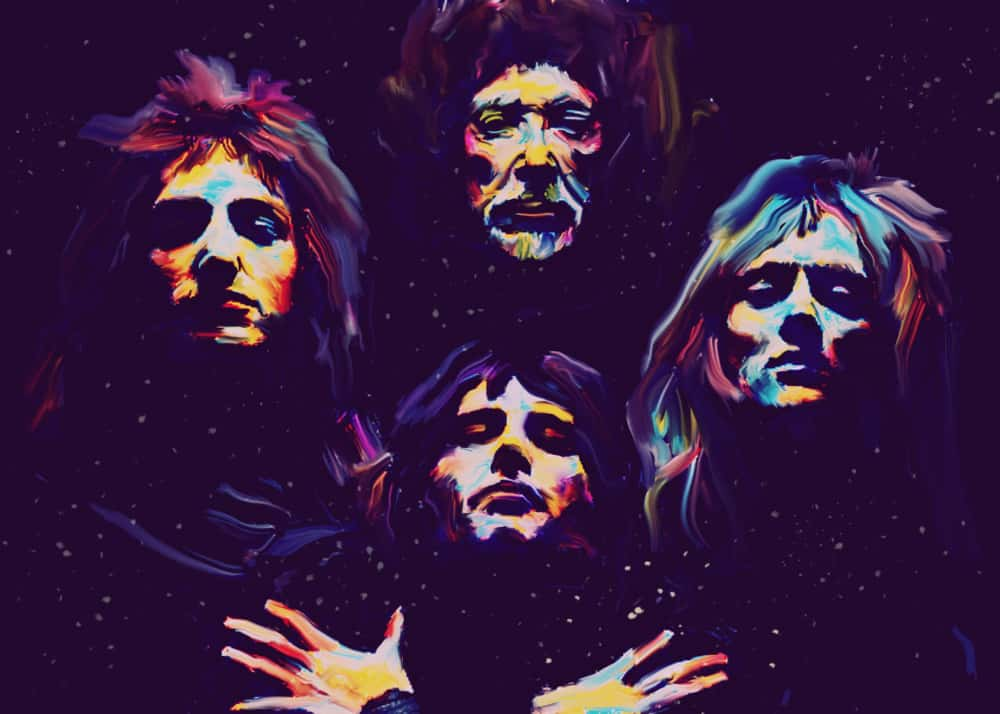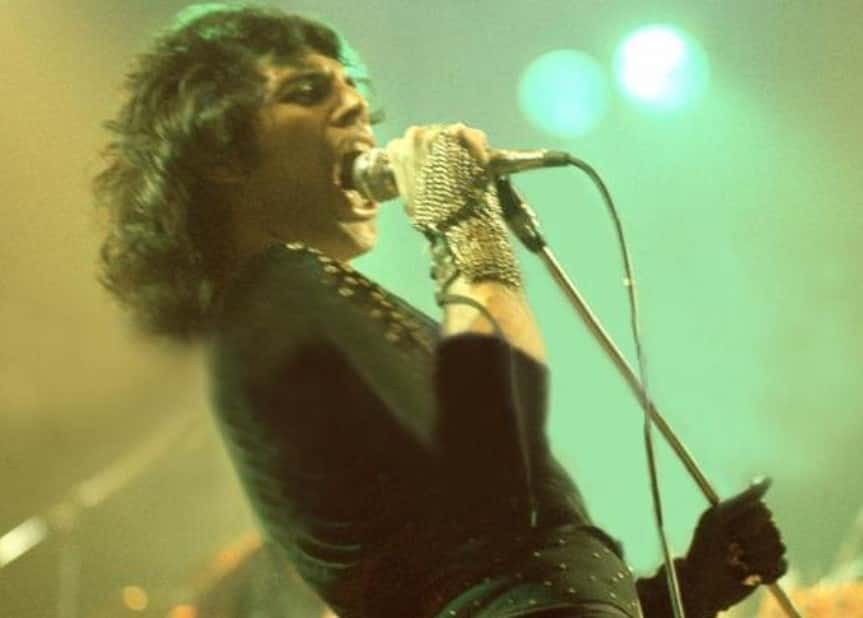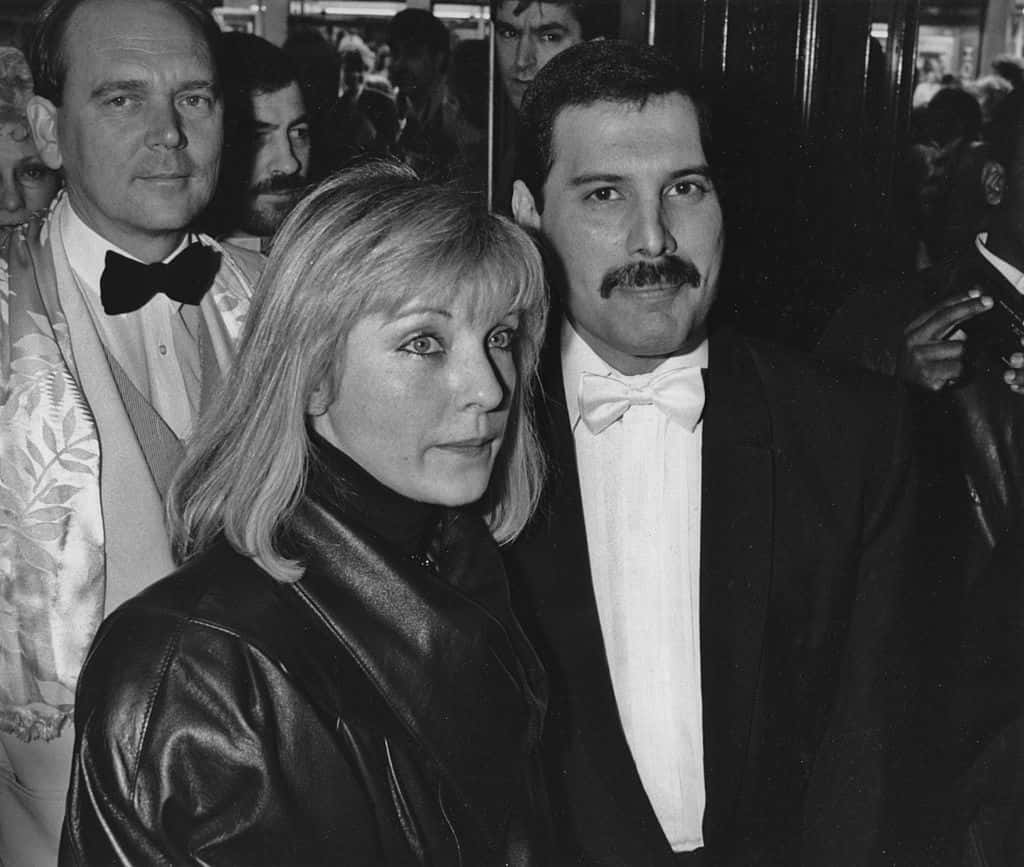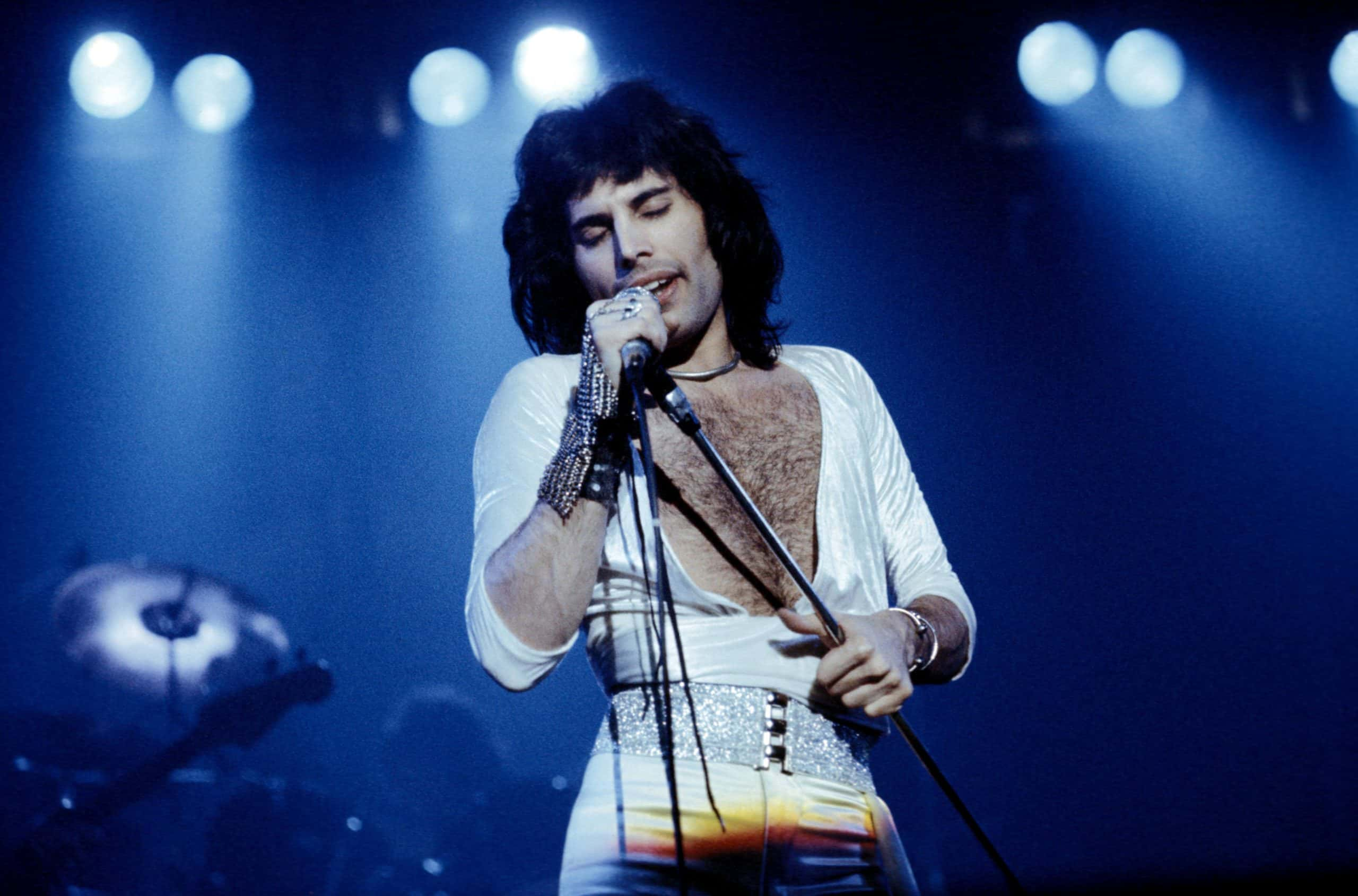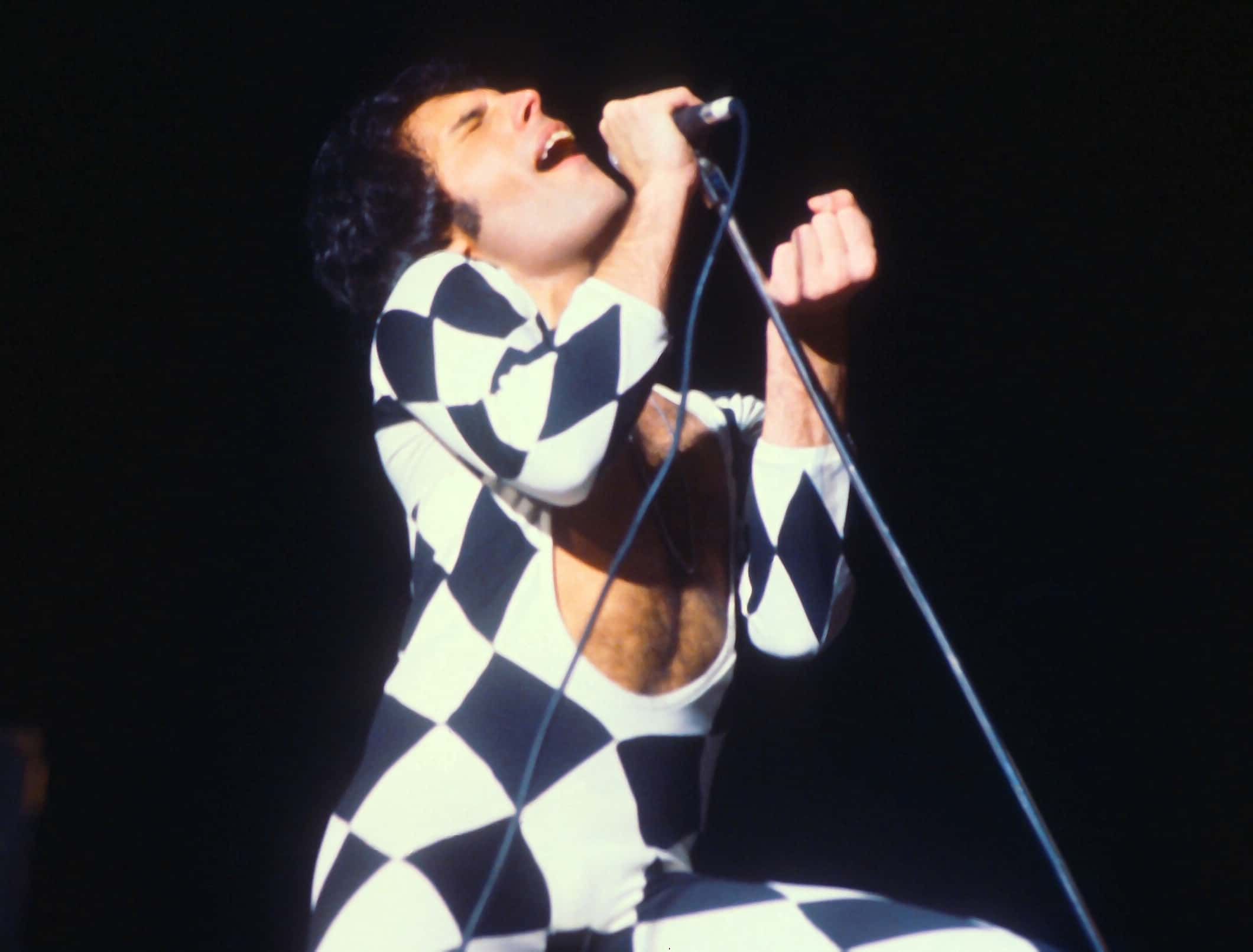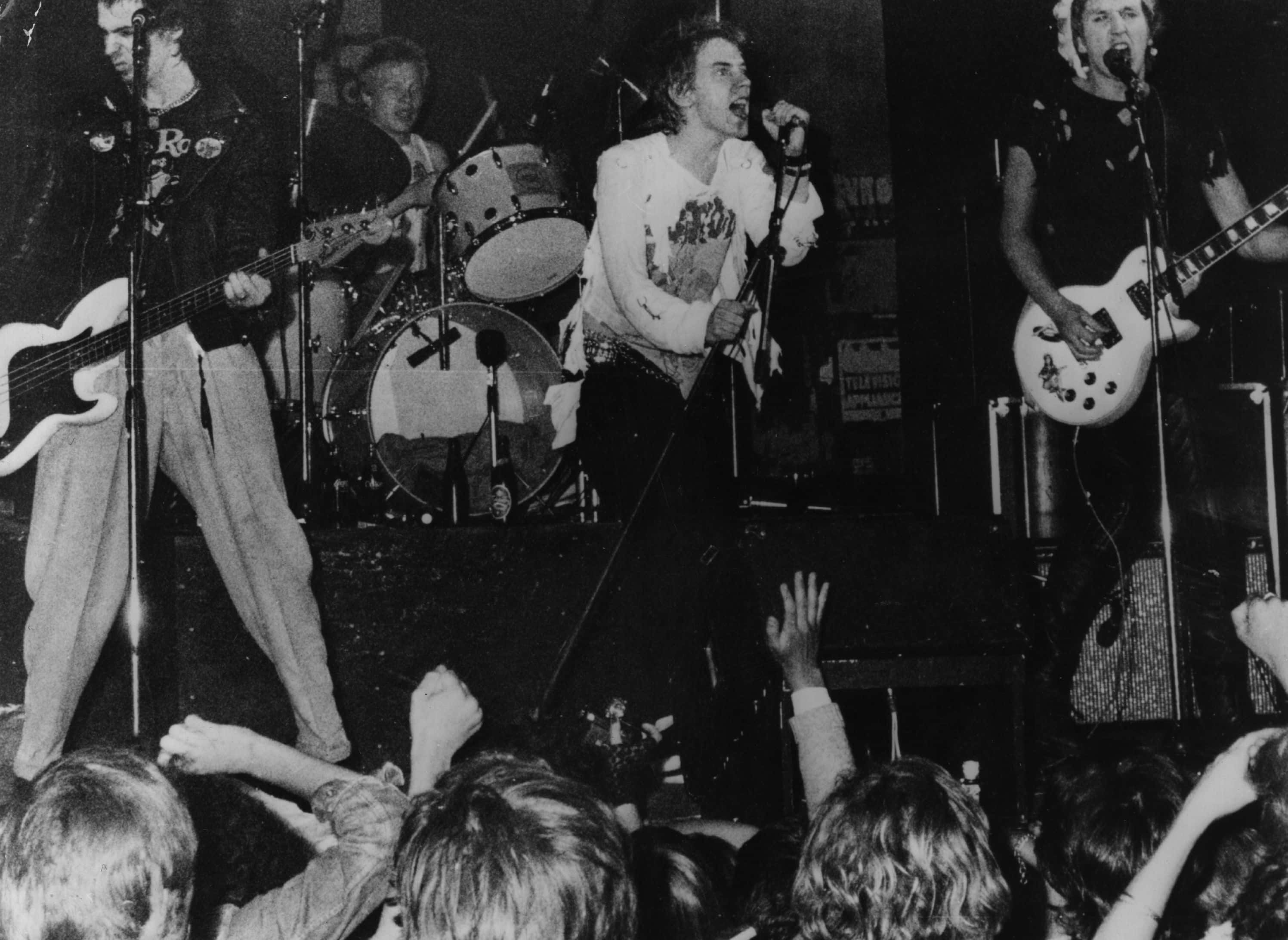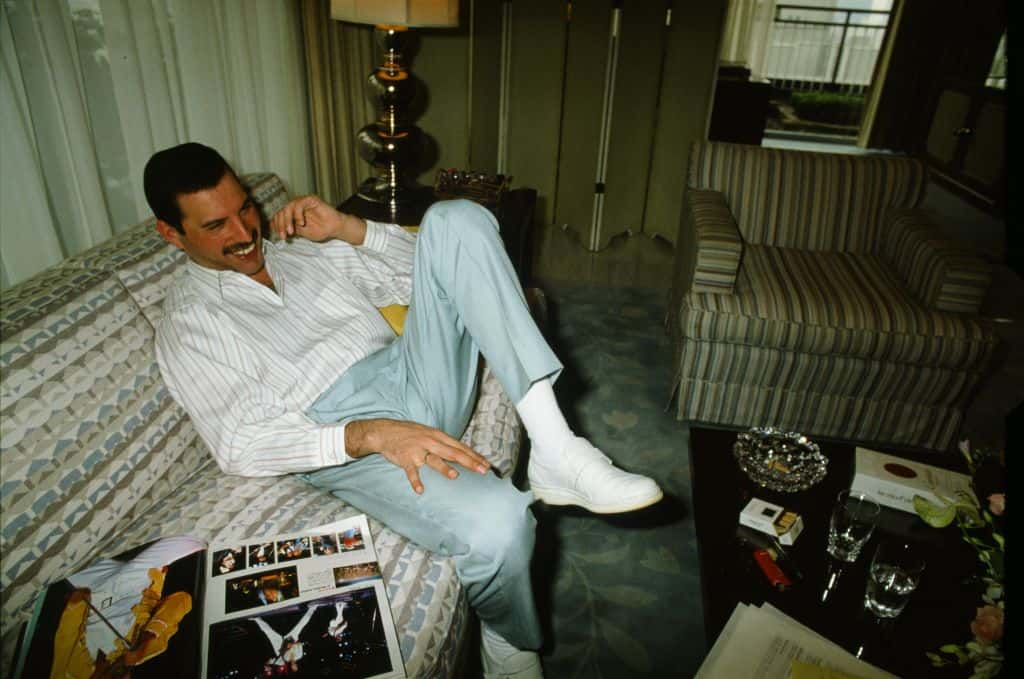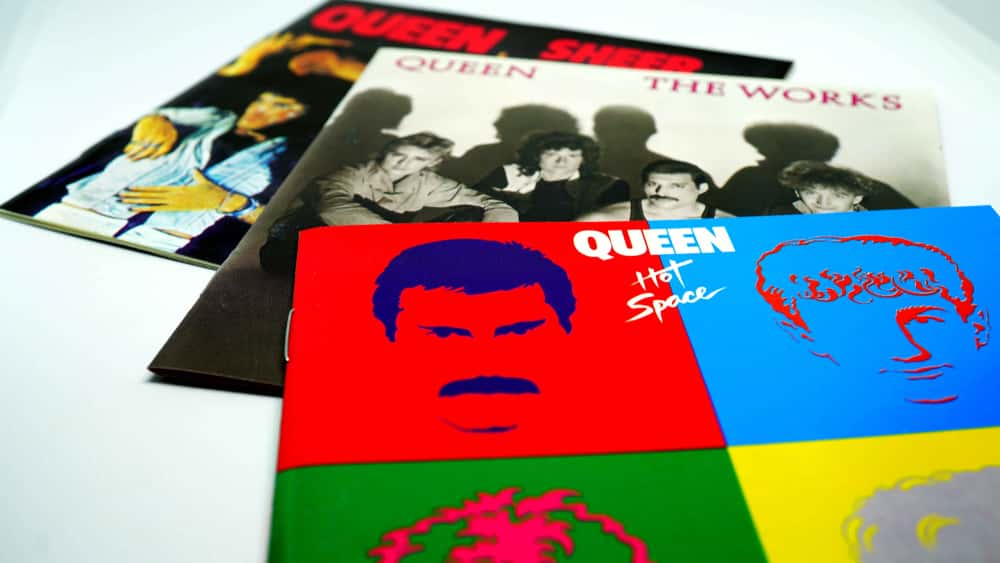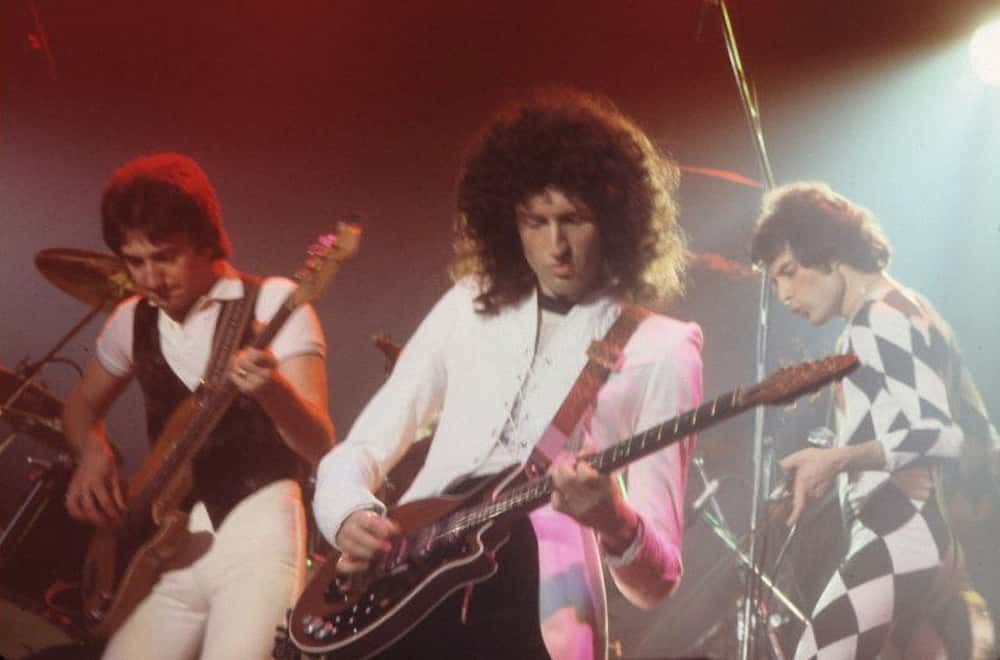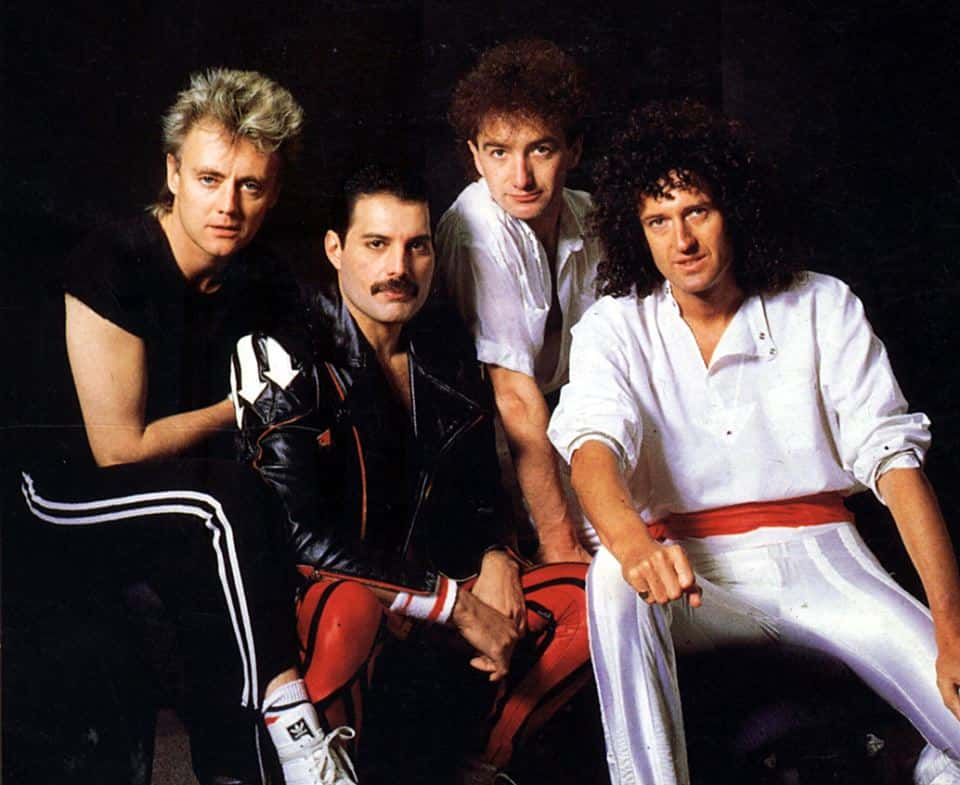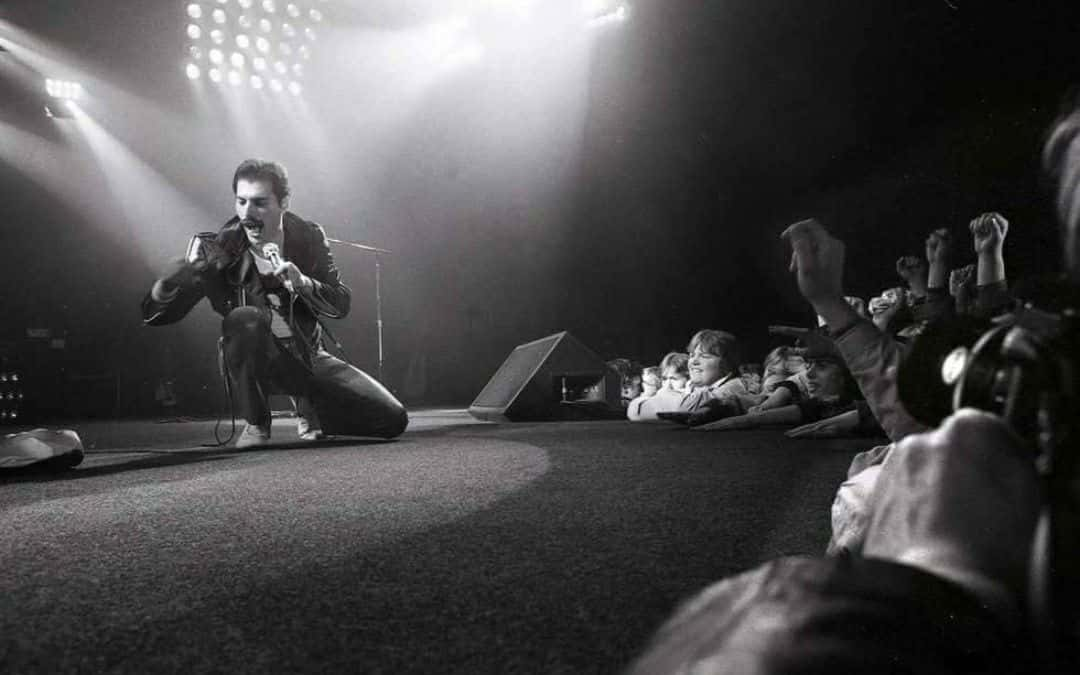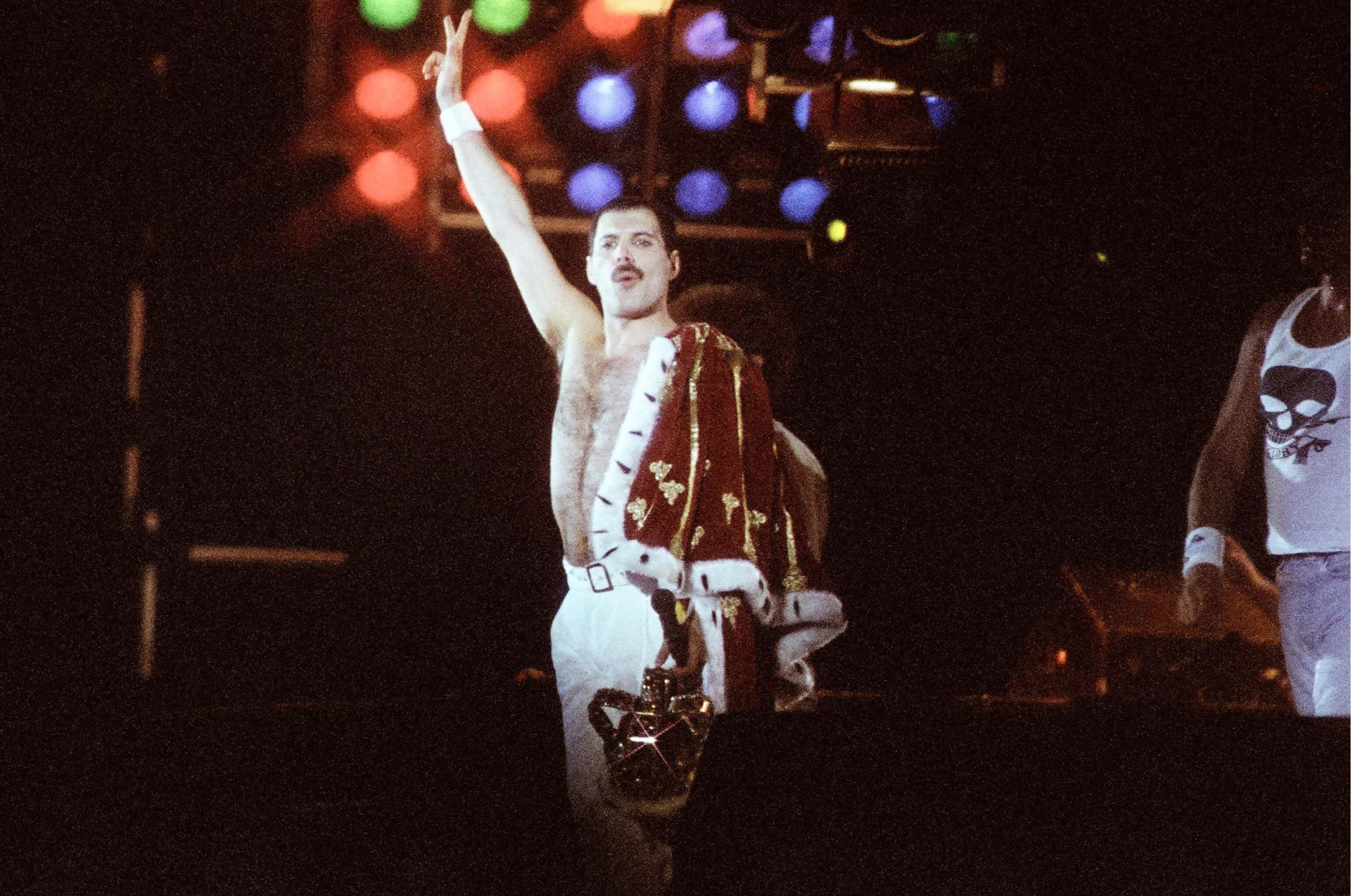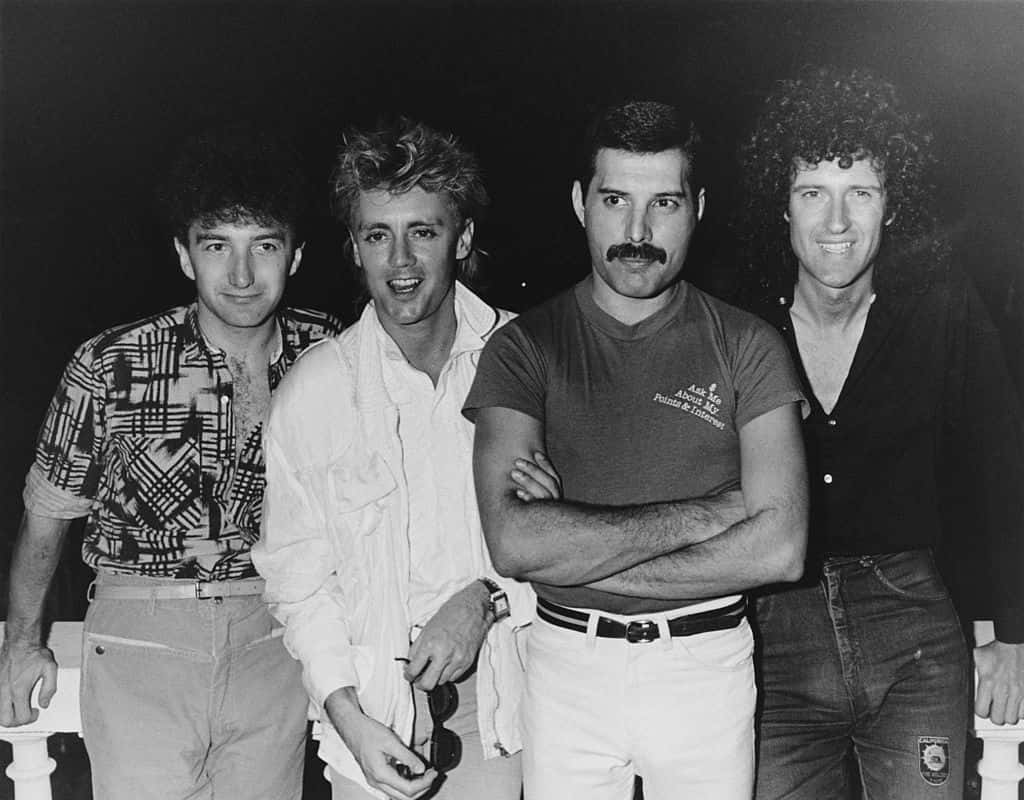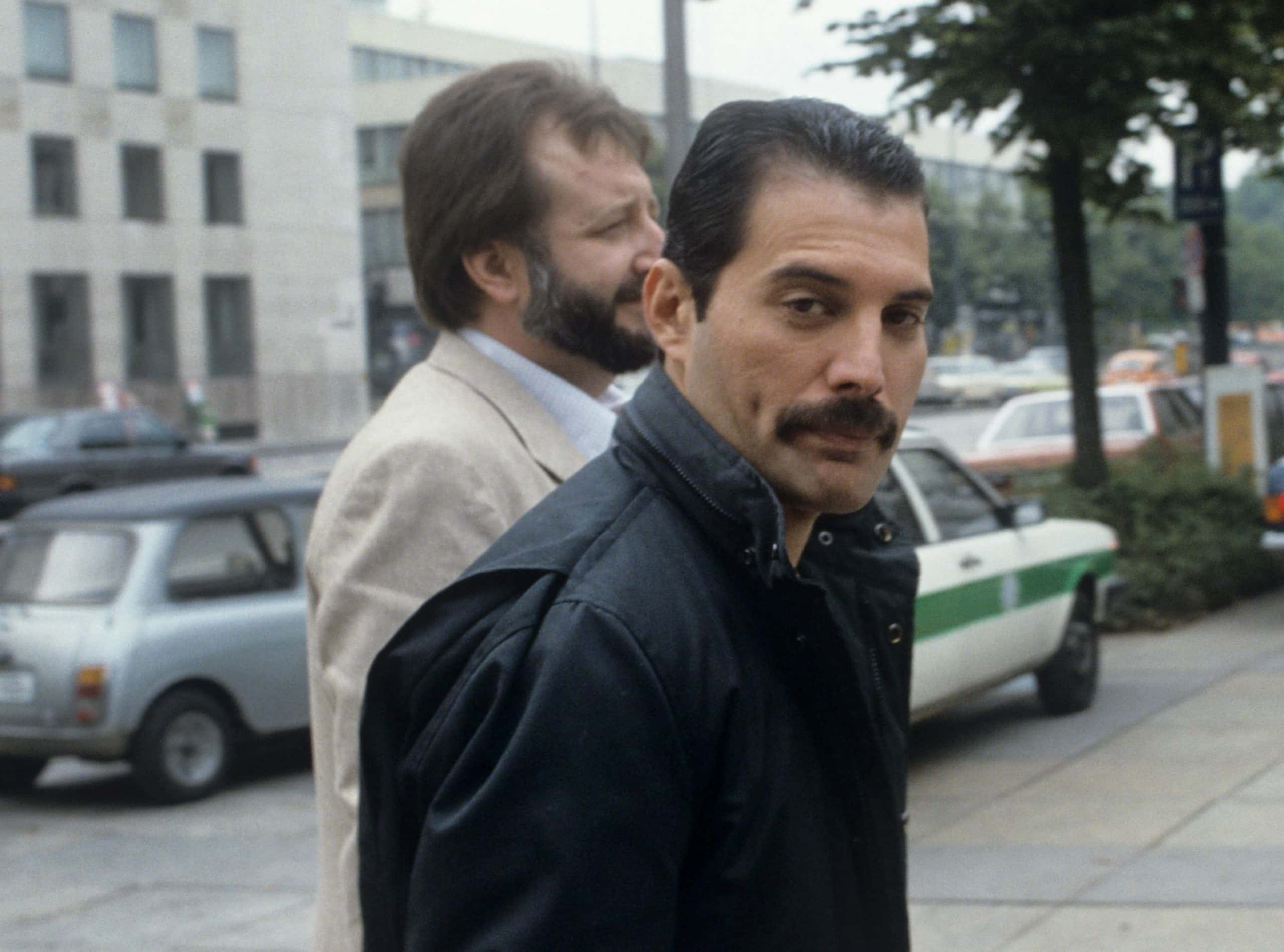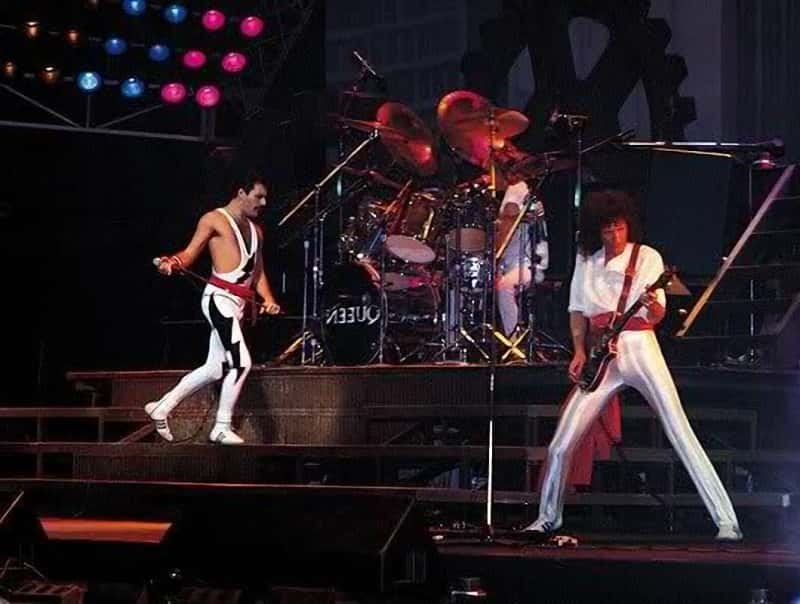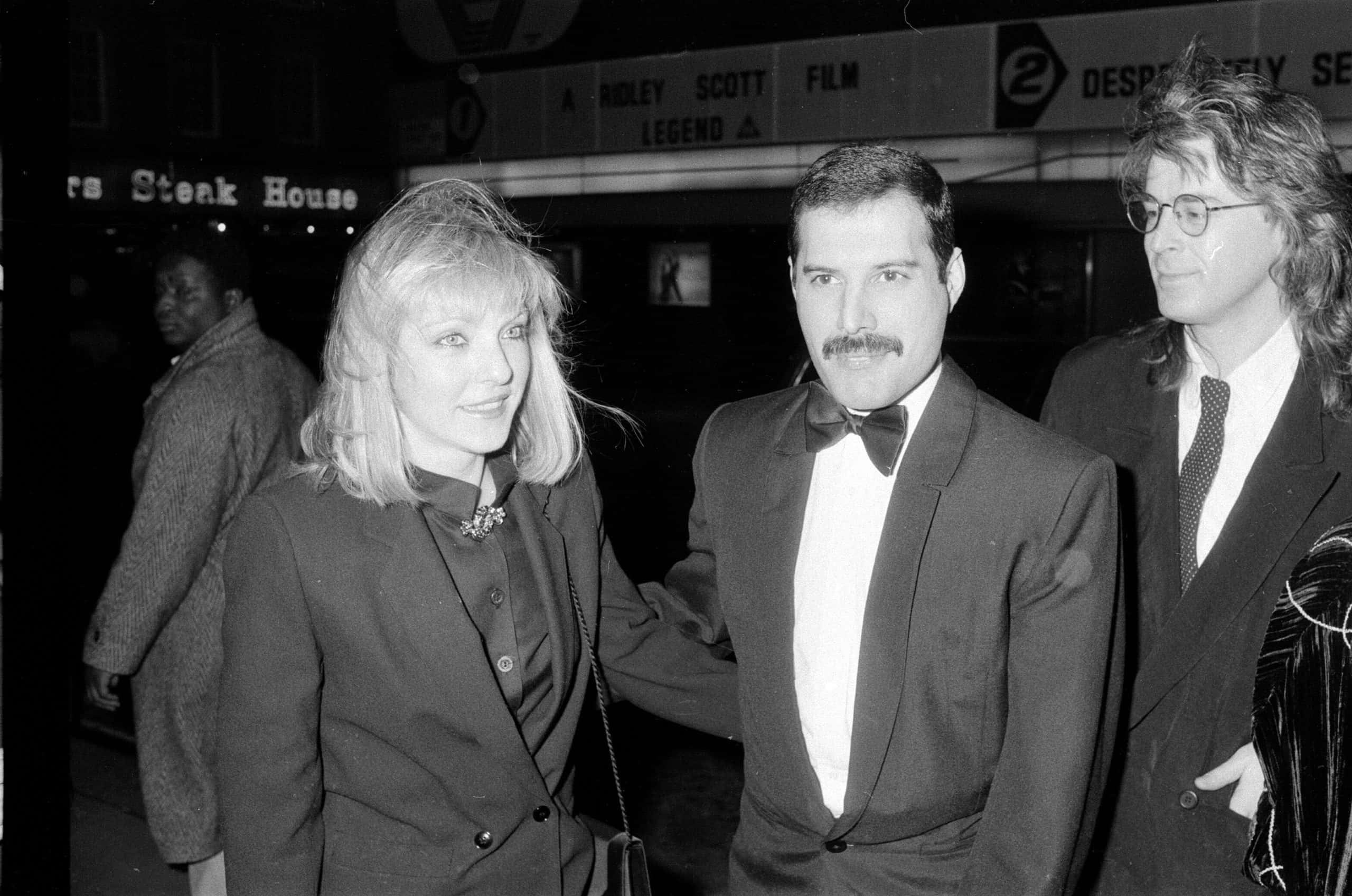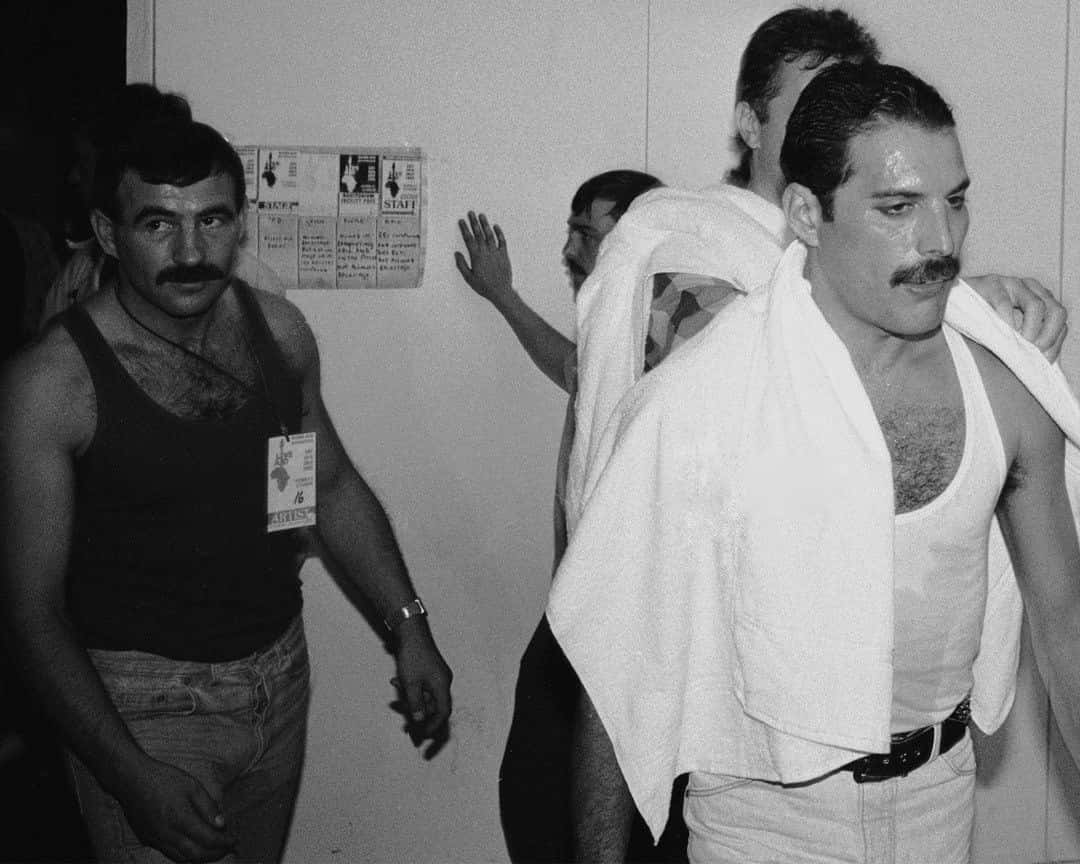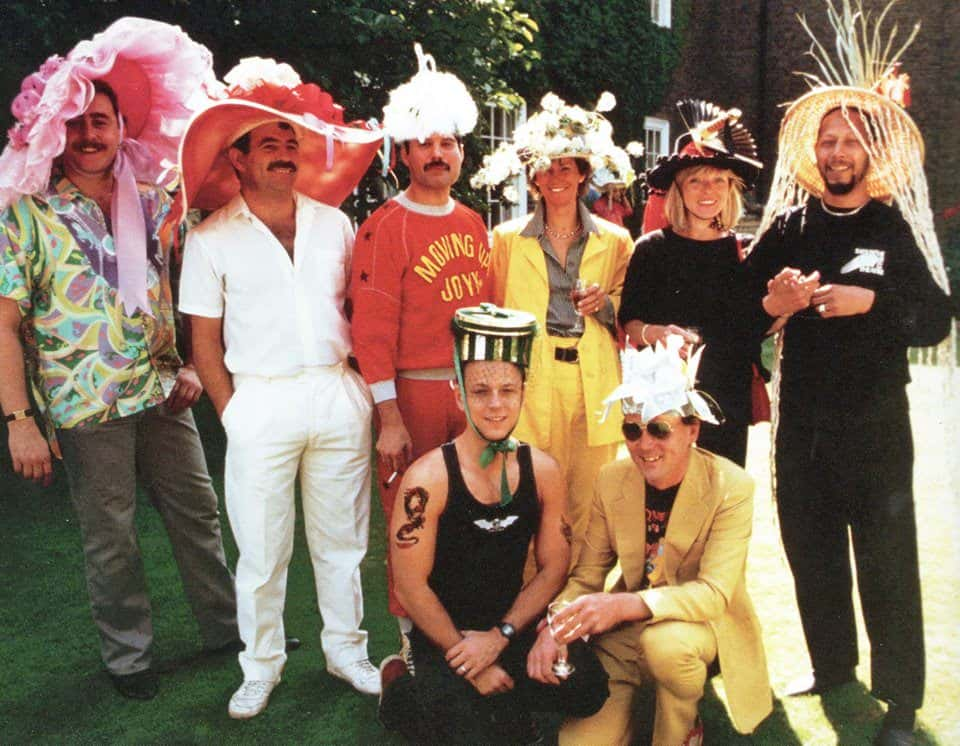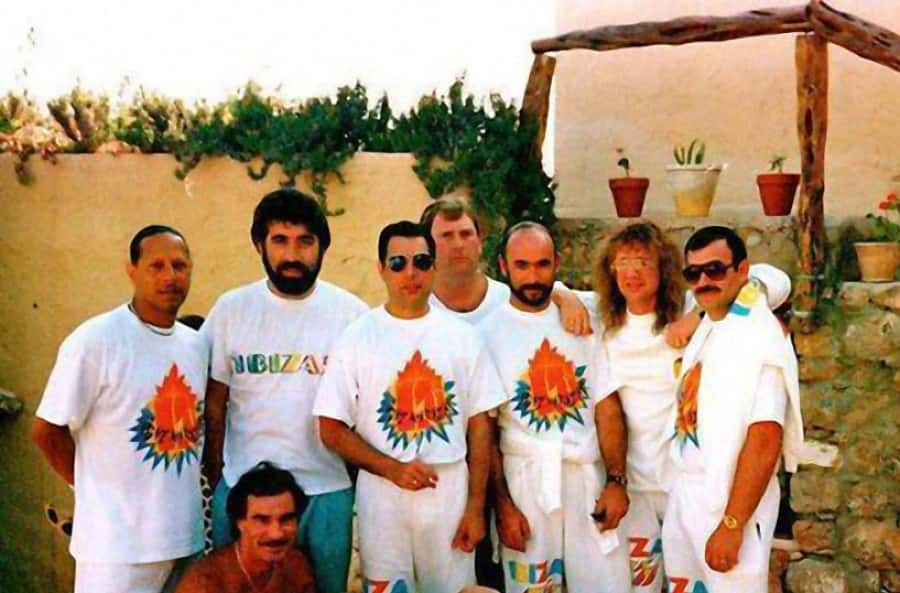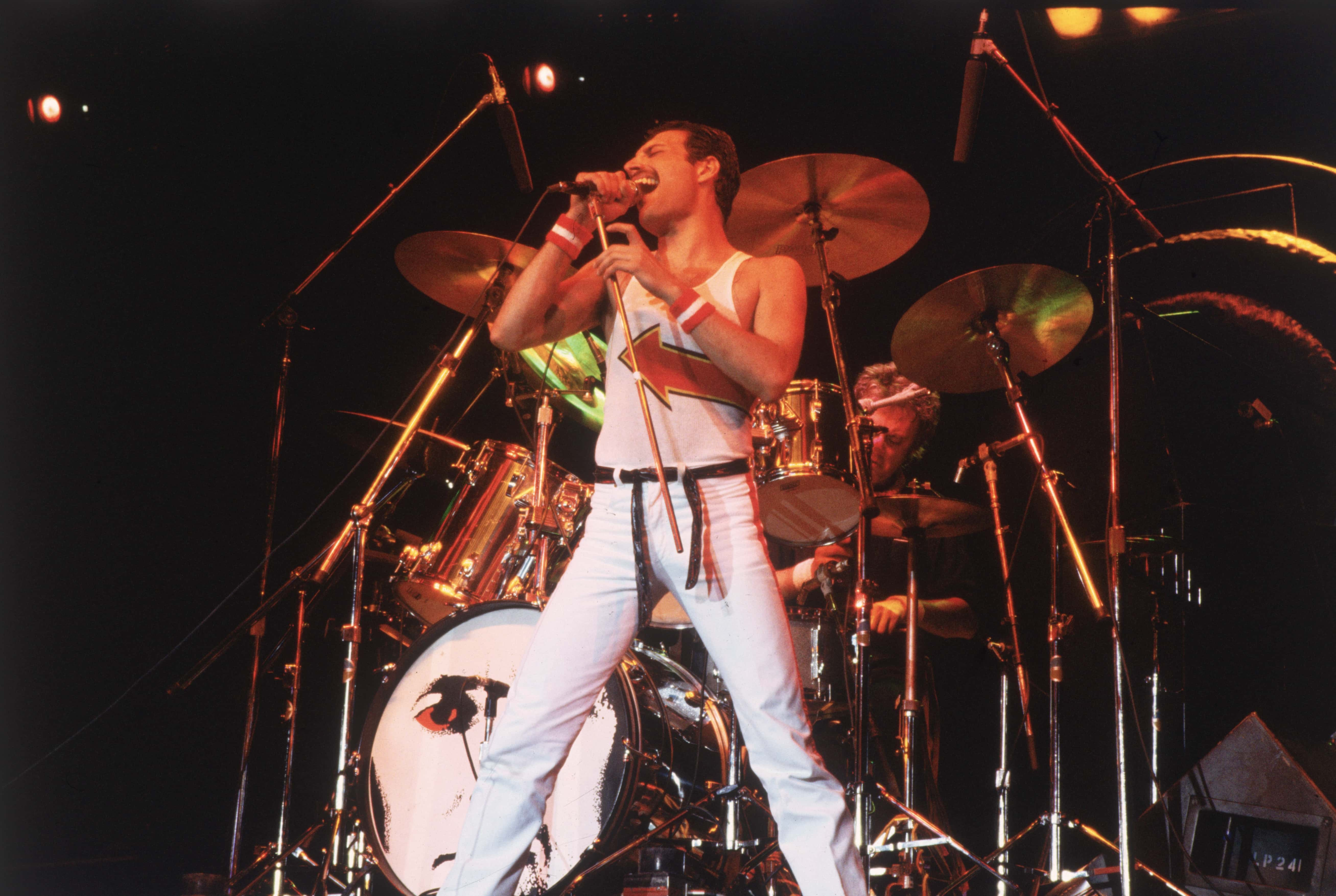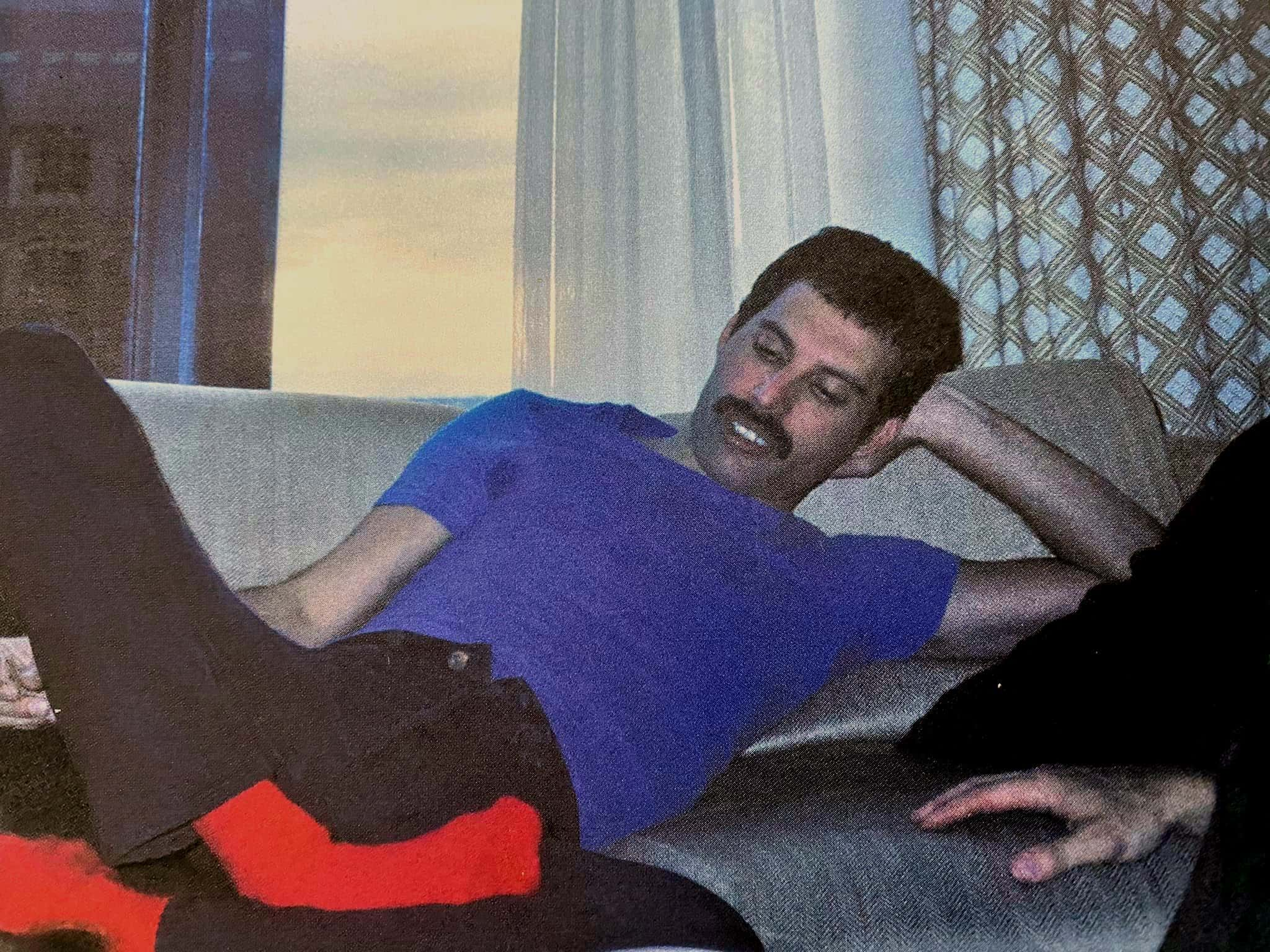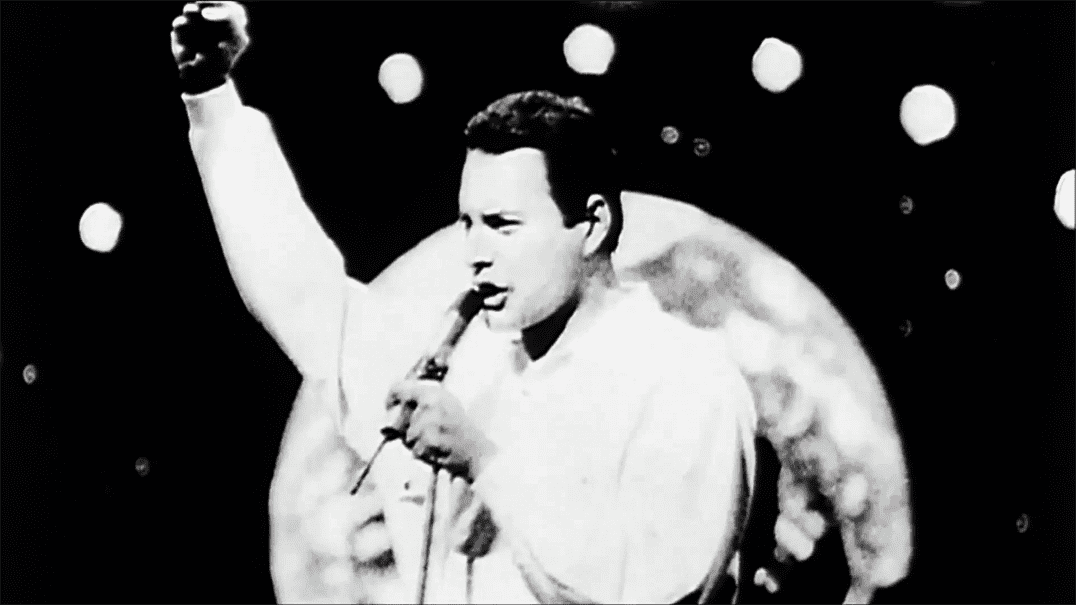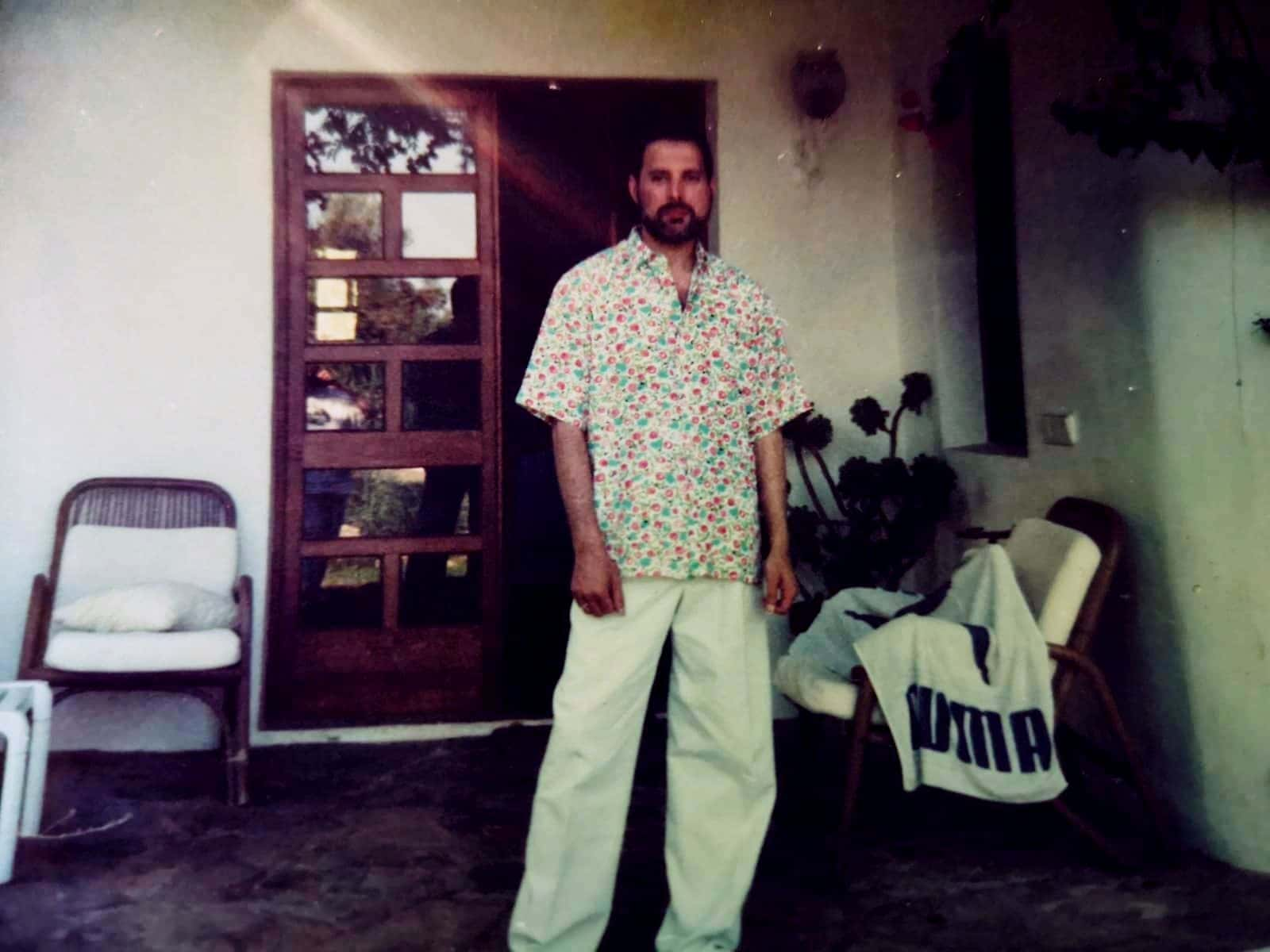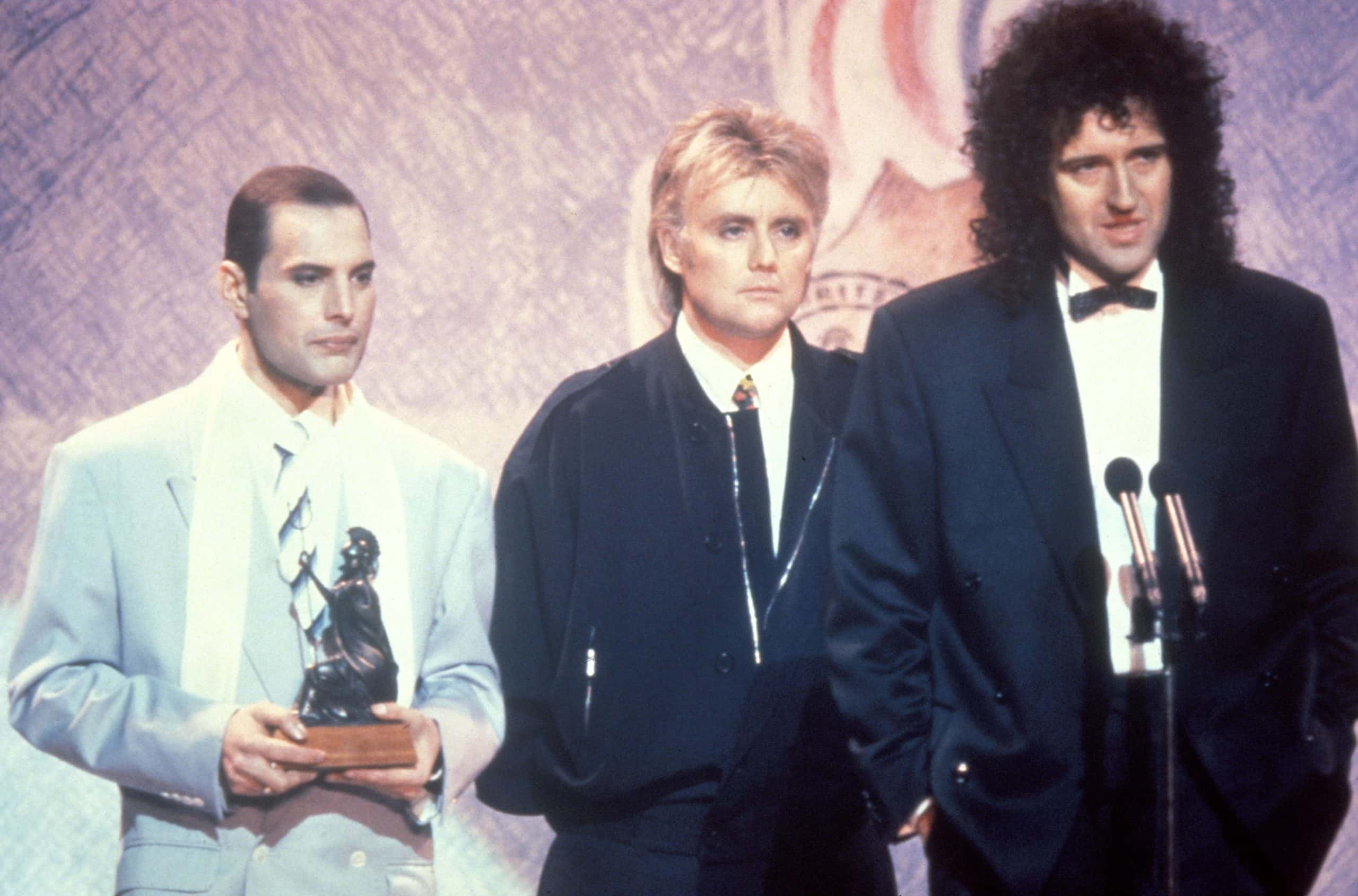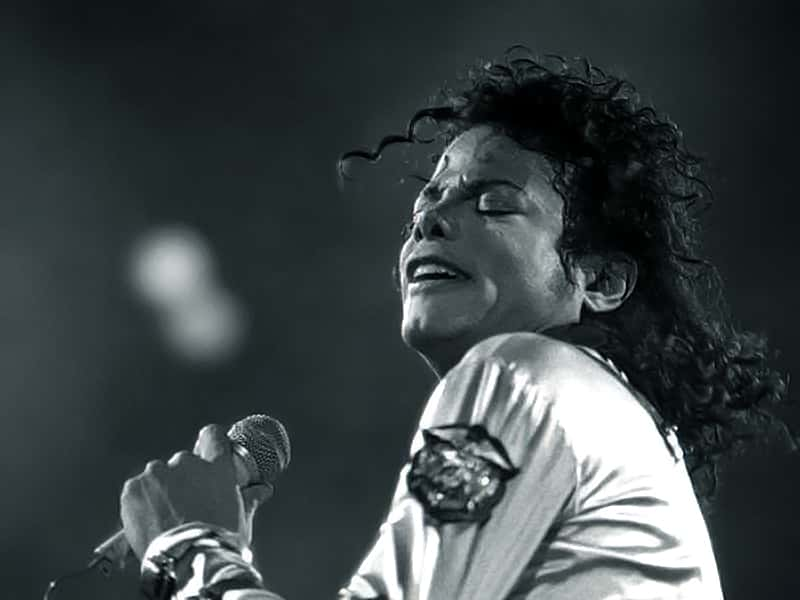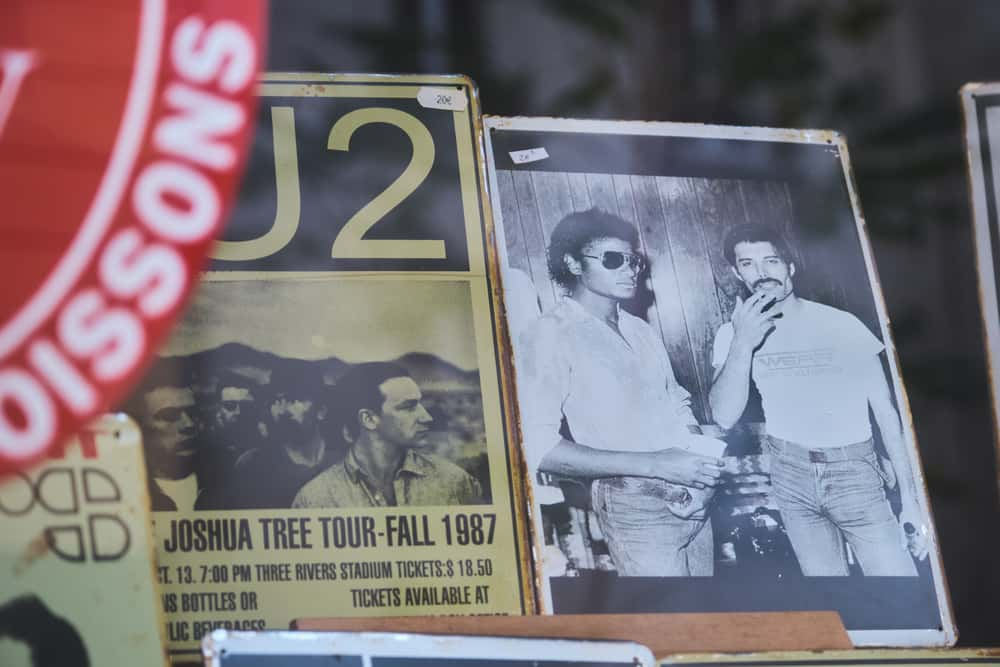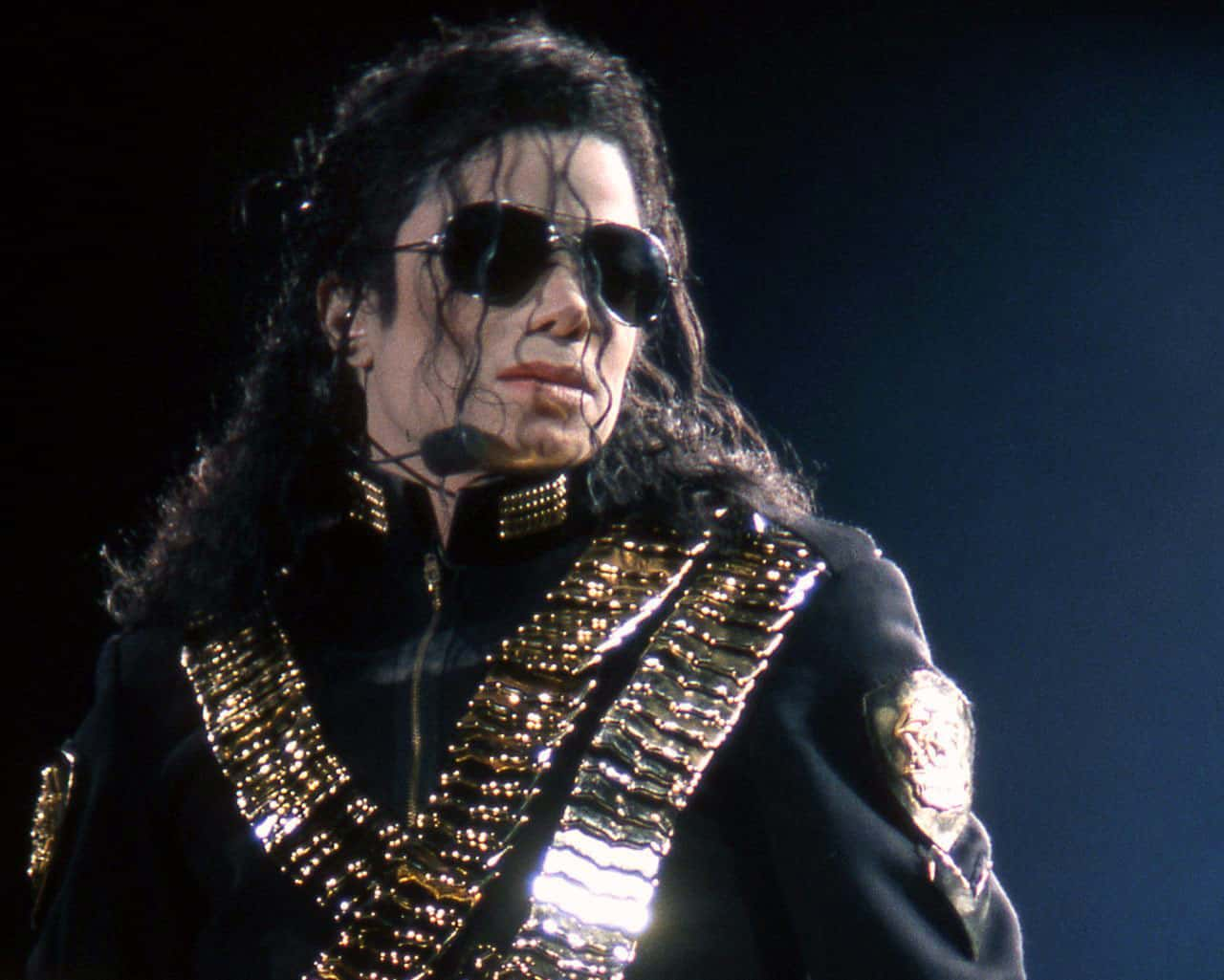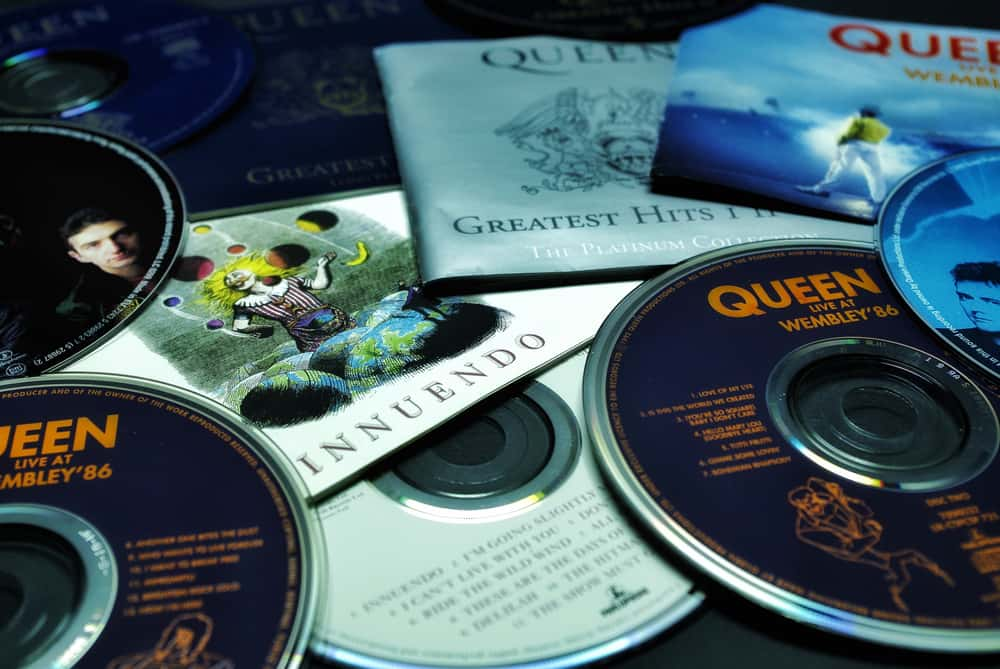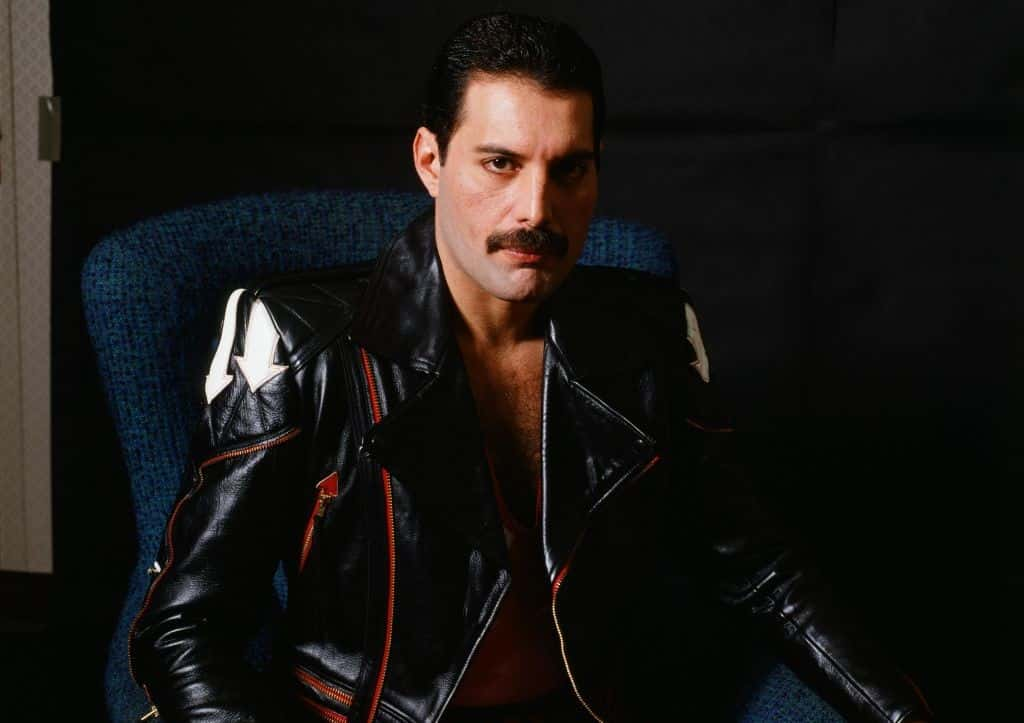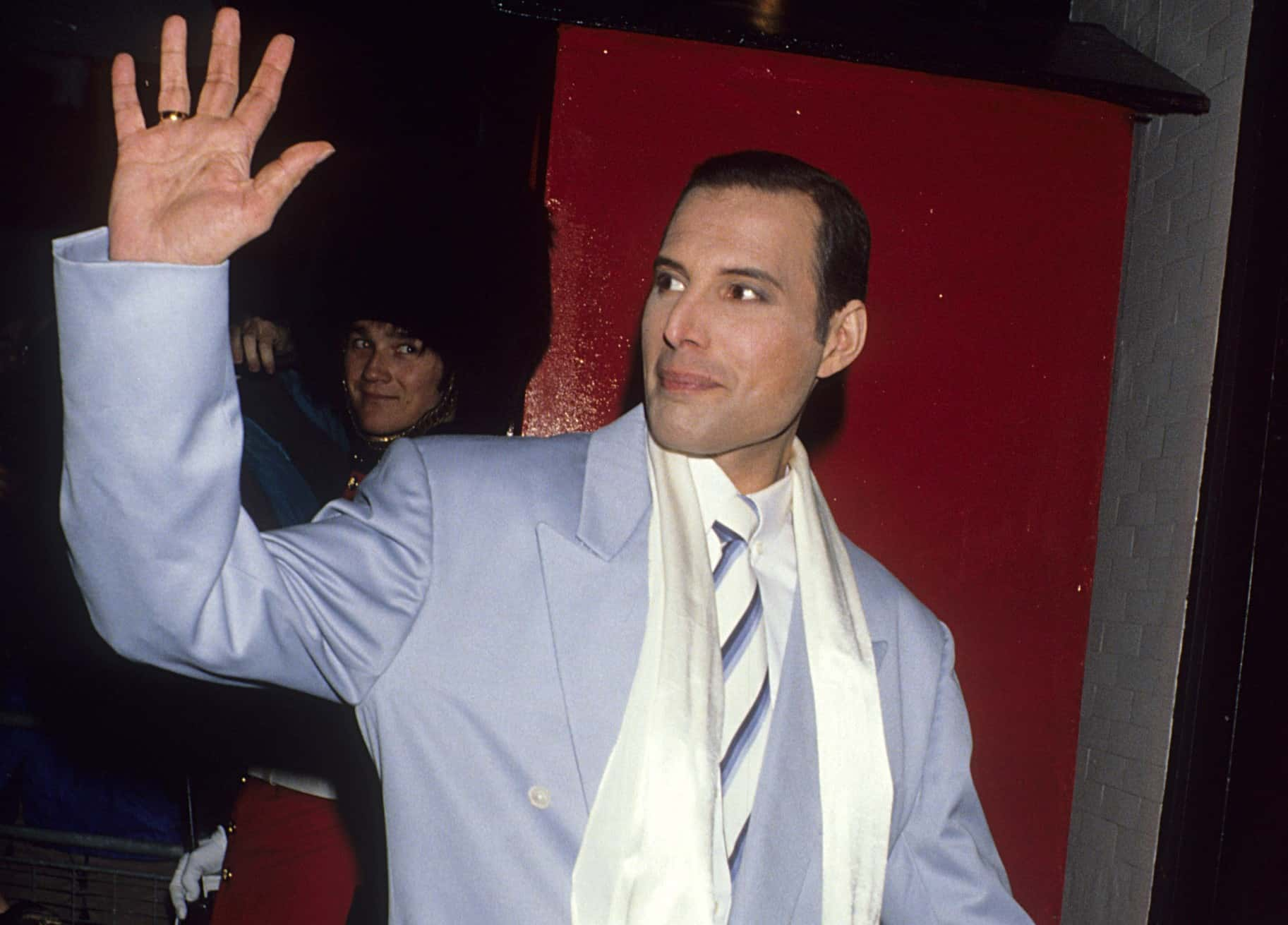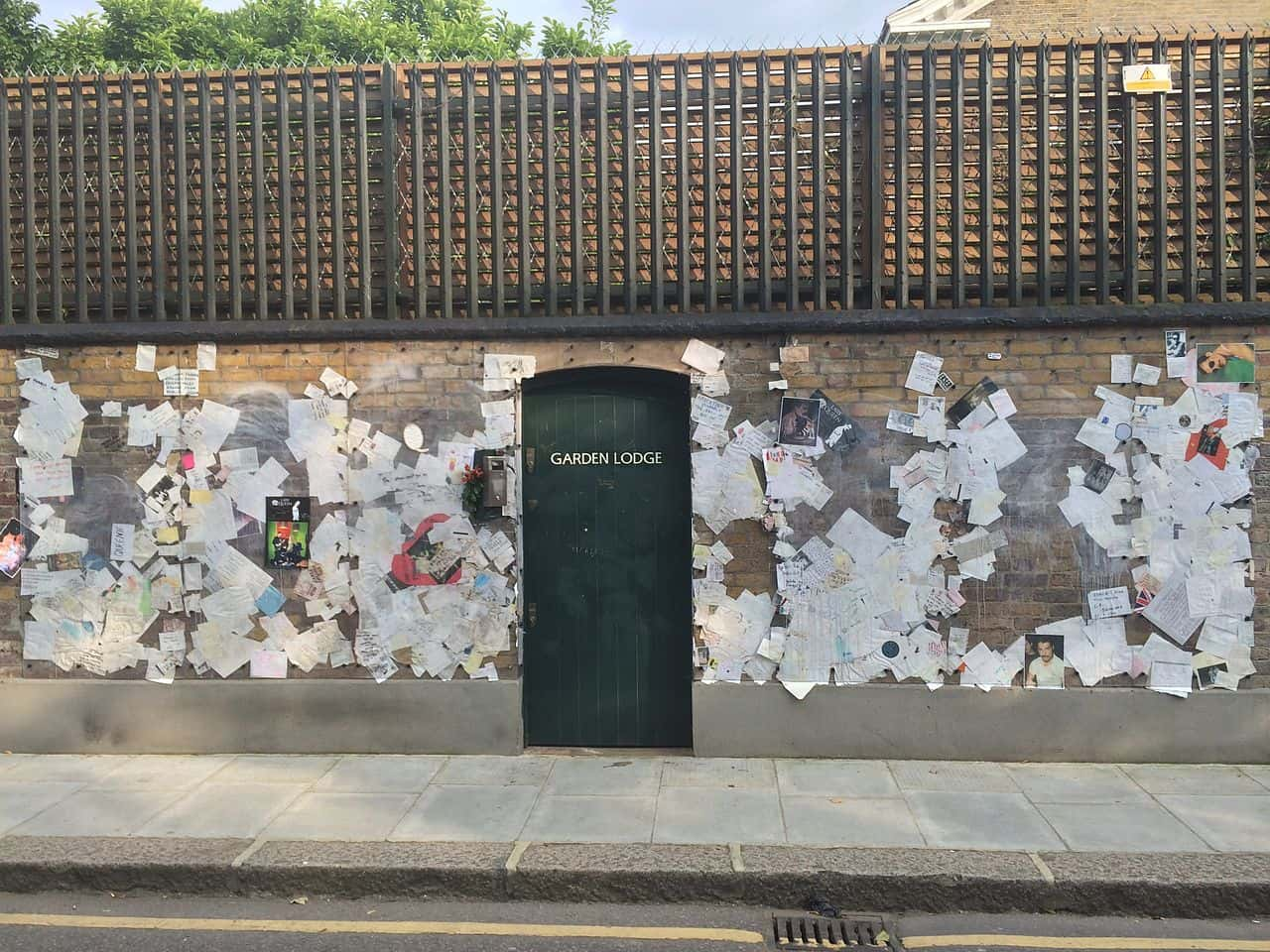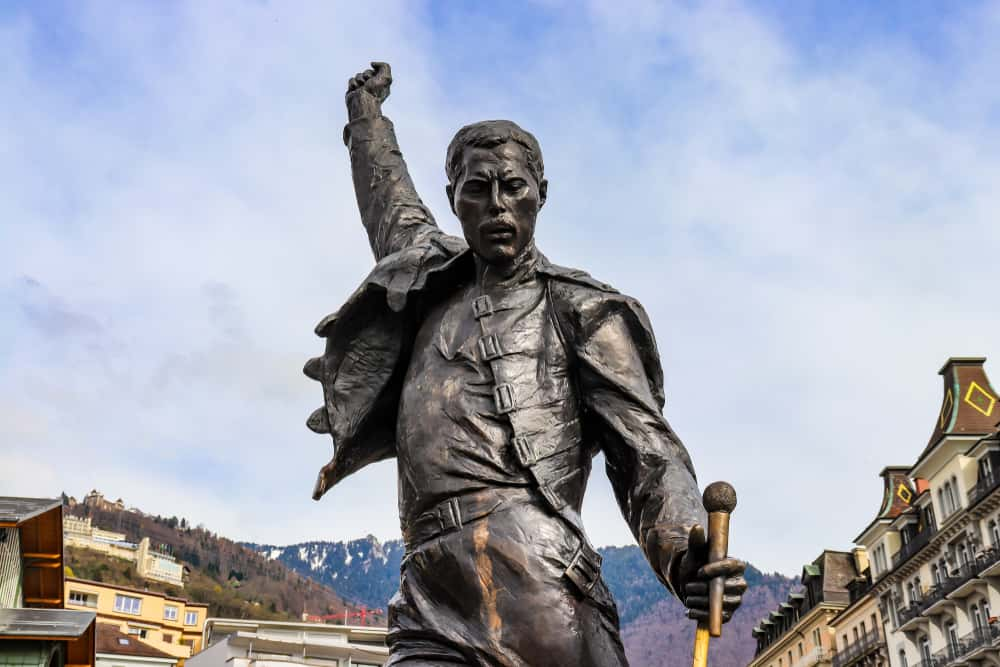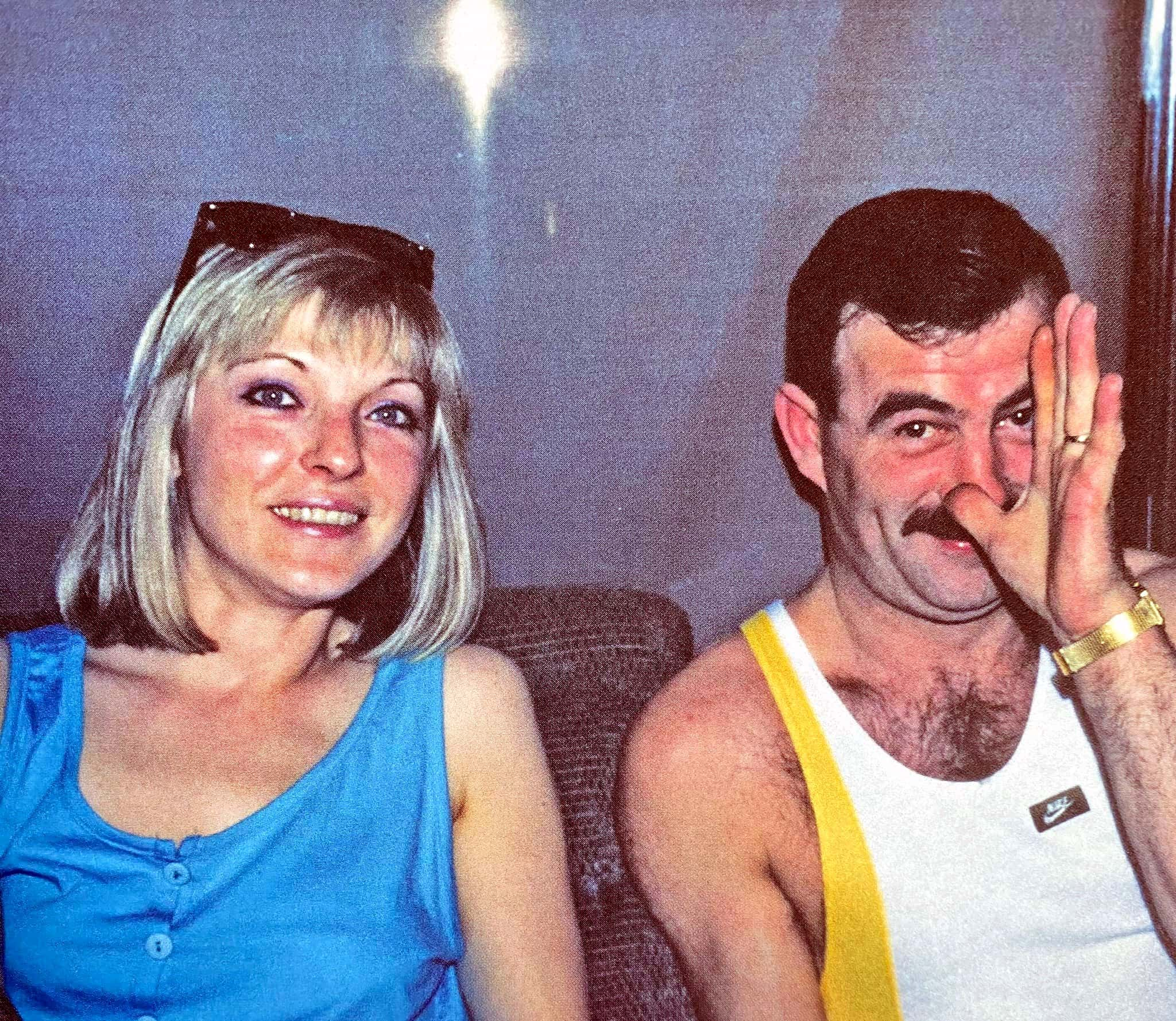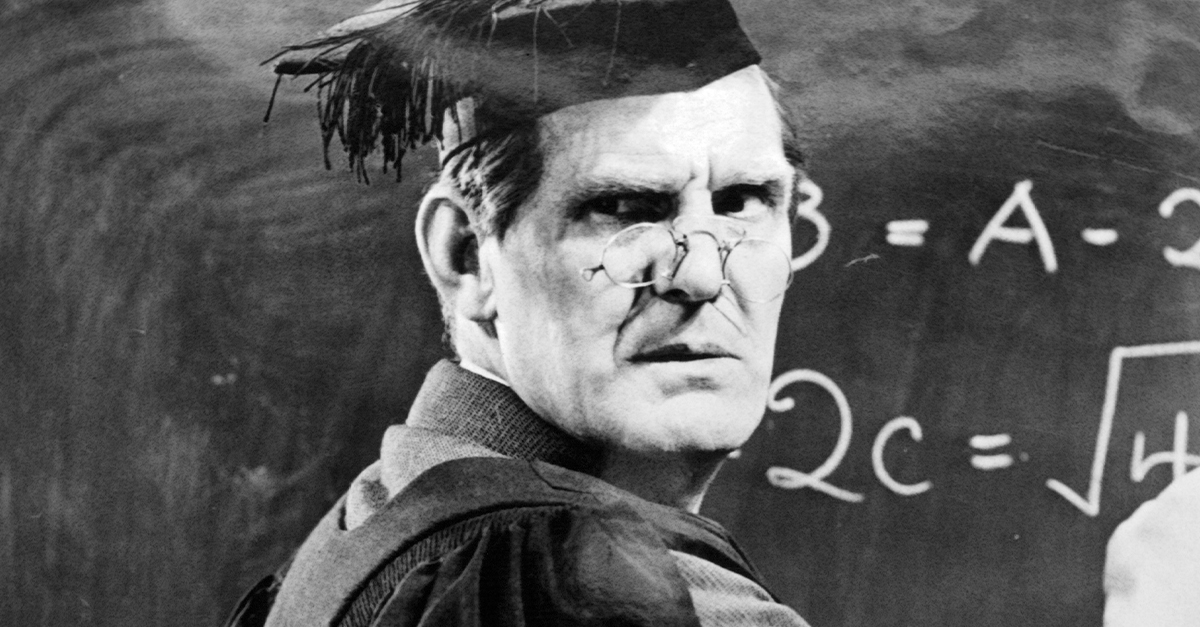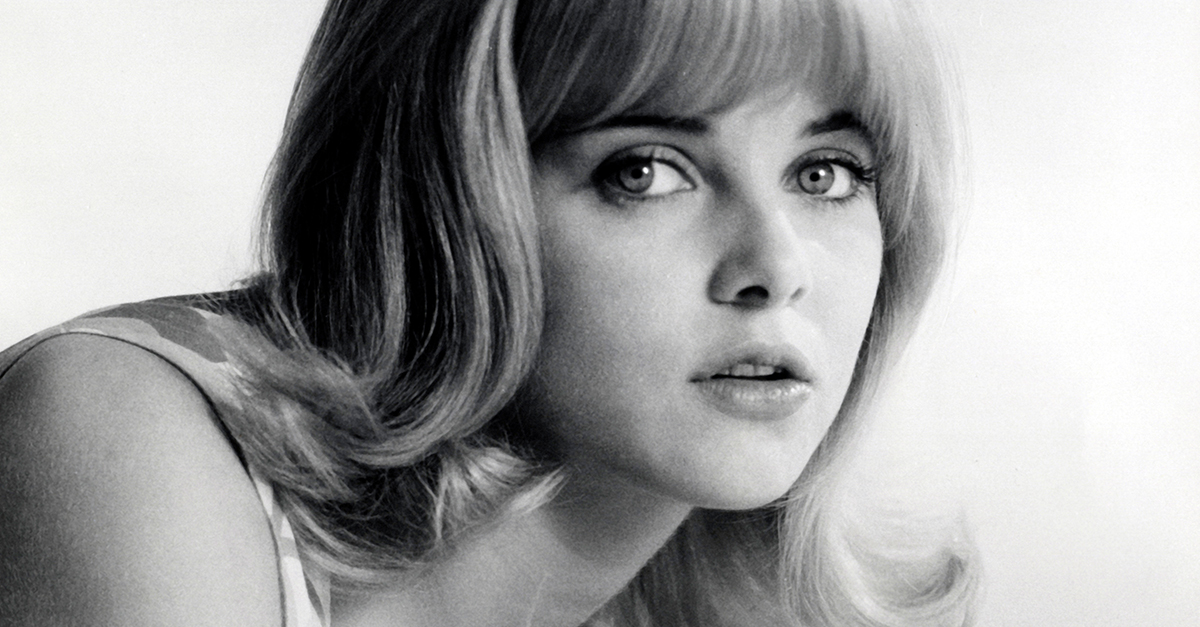Freddie Mercury, The King Of Queen
With a stunningly powerful voice and an onstage presence to match, it’s not an overstatement to say that Freddie Mercury was one of the greatest rock frontmen of all time. But behind the scenes, Mercury’s life was wildly different than what fans saw. From secret pain and heartache to controversy to the jaw-dropping tragedy of his untimely end, Mercury’s story isn’t for the faint of heart.
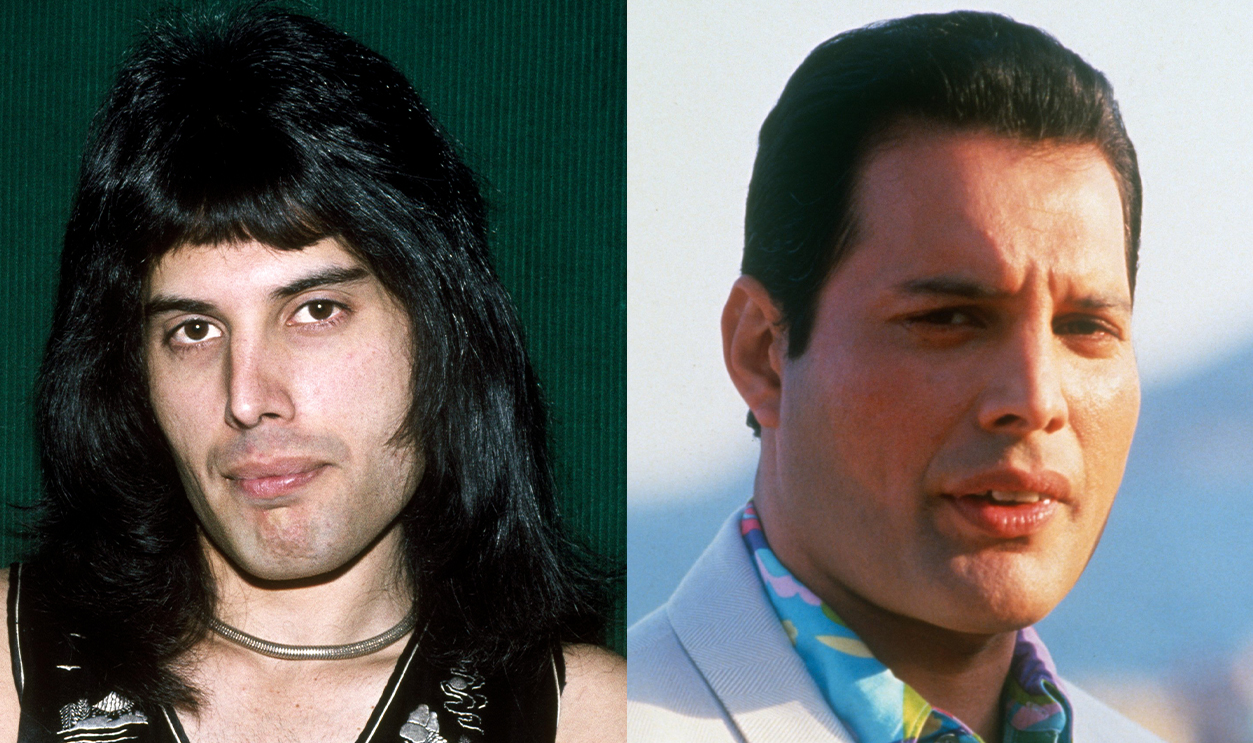
1. He Had A Nomadic Childhood
The drama surrounding Mercury’s sad end could only be matched by the tumult of his early life. The man we know as Freddie Mercury was actually born Farrokh Bulsara in British colonial Zanzibar, in East Africa. While they were originally from western India, Freddie’s father worked for the British Colonial Office, which meant that they lives could be upended at any moment—and often, they were.
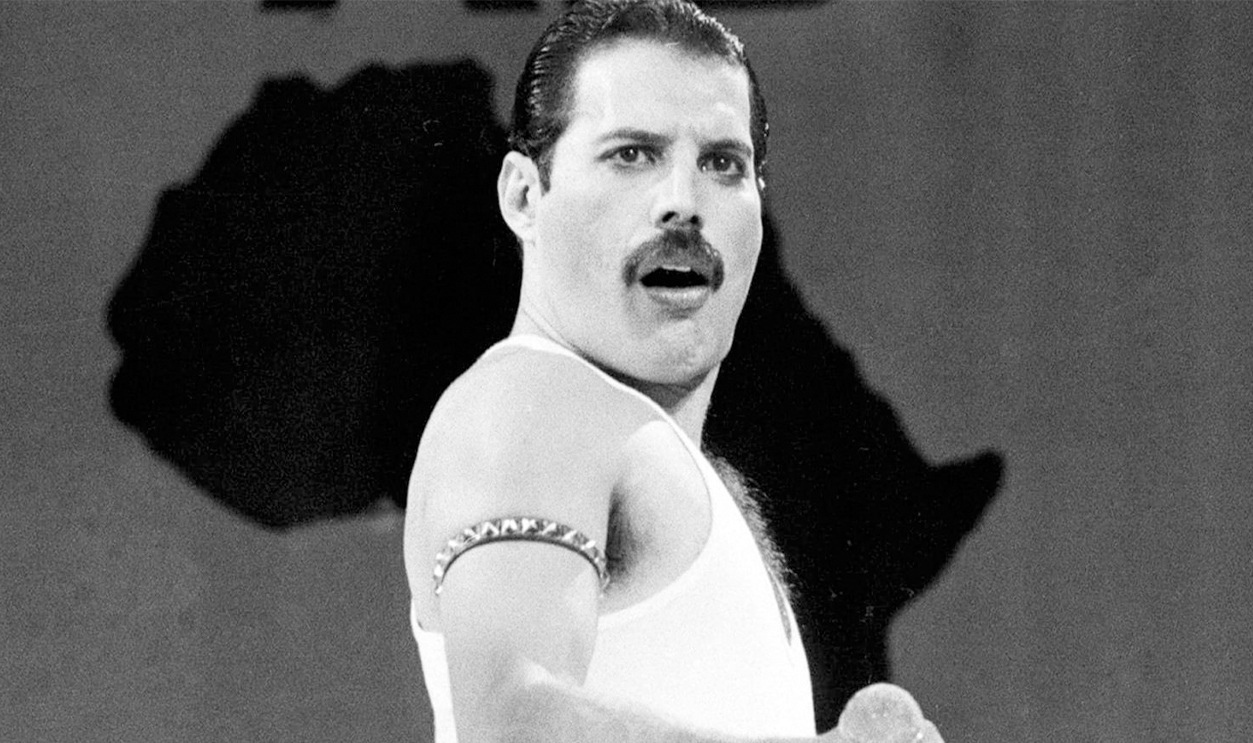
2. He Was Meant To Be A Star
It seems like Freddie’s upbringing—formative years spent in colorful, exotic places—would later play a huge part in his dazzling and flamboyant public image. In fact, there’s concrete evidence he was born to be a singer. Mercury was born with four extra incisors—and this resulted in a different shape of mouth, which acted almost like an amplifier for his voice.
But while Mercury had the talent and aptitude, he didn’t necessarily have the attitude.
3. They Sent Him Away
Freddie Mercury was a painfully shy child, and the upheaval of his early years certainly didn’t help things. He was an only child until the age of 7, when his mother gave birth to his little sister, Kashmira. It was a joyful time—but Freddie had a sad surprise in store. His father thought that an education in India would be much better for him, so they sent little Freddie away to a British-style boarding school near Bombay.
It was his first time away from his family, and the loneliness must have been crushing. However, it took a lot to keep Freddie Mercury down…
4. He Had To Leave Home Again
Mercury quickly settled in at boarding school, not only taking to his arts classes, but also making a concerted effort at trying a variety of sports and sticking with piano lessons. Just when it seemed like he was adjusting, life threw him another curveball. In 1964, riots broke out in Zanzibar, and his family fled to England.
He joined them there—but it was way more of a culture shock than he could’ve predicted.
5. He Didn’t Adjust Well
After spending the first decade and a half of his life in warm, sunny locales with a bustling street life, Freddie Mercury found himself in drab, conservative Feltham, a town a handful of miles outside of London. The consequences were dire. Mercury struggled in all aspects of his life because of the sharp transition, but his schoolwork became a particular problem.
Luckily, things in London were about to change in a big way…
6. He Found Something To Believe In
The era of the Swinging Sixties was taking full hold in London. Inspiration was everywhere in the form of British acts like the Beatles and the Rolling Stones, and records from the US’s best Black soul artists made their way into local record stores. The Stones and the Who alike had been products of London-area art schools, and Mercury set his sights on Ealing Art College, where he studied art and design.
His parents weren’t exactly thrilled, but Mercury was determined to—ahem—break free of the drearier side of his new home country.
7. He Was In The Wrong Place At The Right Time
Ultimately, a design program wasn’t exactly the arena for Freddie Mercury to express his creative side. While other students worked on package designs for supermarket products, Mercury grew more and more enamored with rock’s most bombastic performers, including Jimi Hendrix. Not that his persona matched theirs at all—he was still fairly reserved.
While many of his peers looked for jobs at ad agencies and industrial design firms upon graduating, Mercury instead branched out…
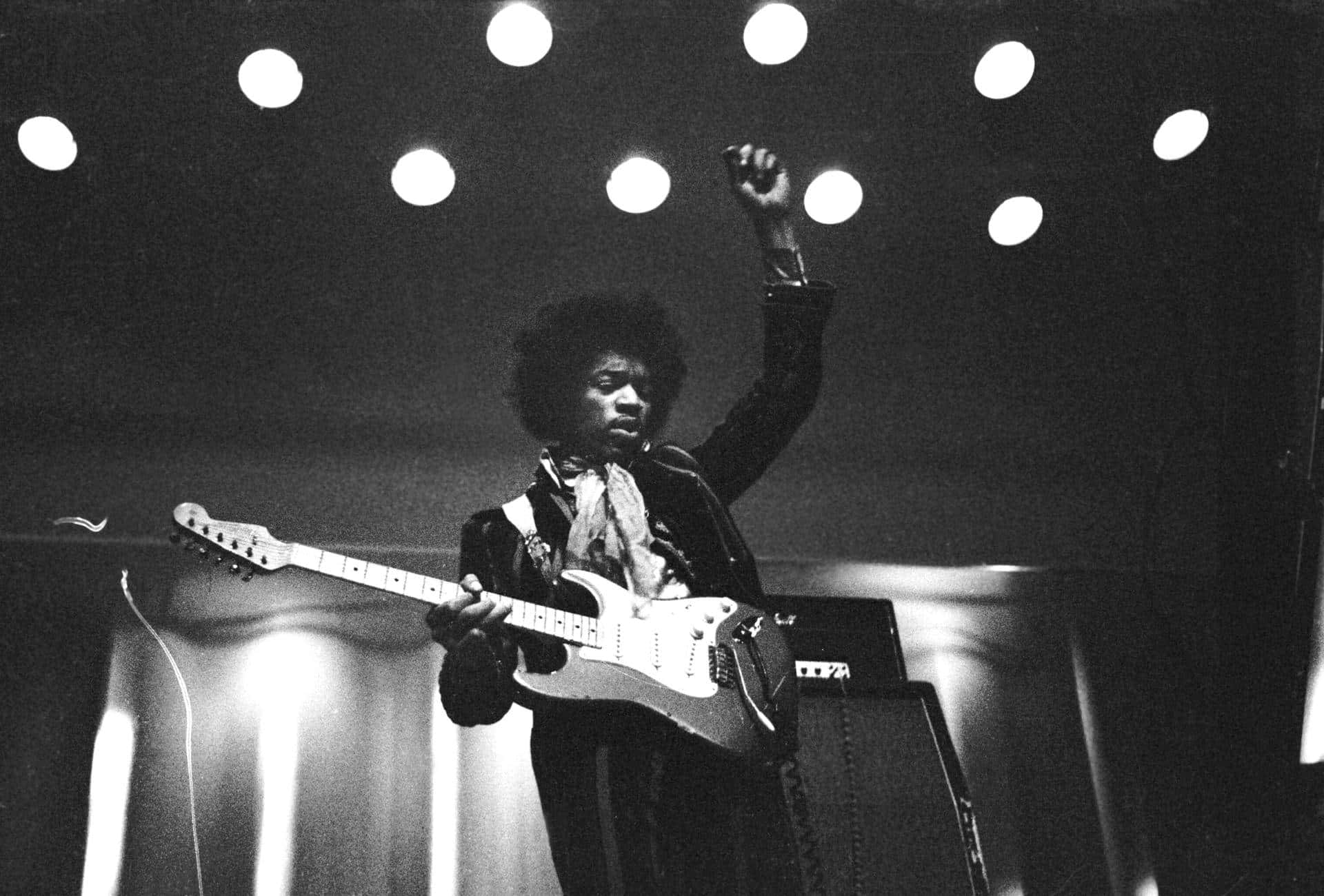 Wikimedia Commons, Hannu Lindroos / Lehtikuva
Wikimedia Commons, Hannu Lindroos / Lehtikuva
8. He Found His Scene
After leaving Ealing, Mercury finally put himself in a position where he could live and work how he wanted to. In between jobs selling vintage clothing and working as a baggage handler at Heathrow, he joined a series of bands, making friends along the way even when the aforementioned groups failed.
Two of these friends, Roger Taylor and Brian May, had a group called Smile. Mercury was a big fan—but just that, only a fan. But sometimes, all it takes is one twist of fate to change everything.
9. He Made It Happen For Himself
Smile was fronted by a singer named Tim Staffell, who was a classmate of Mercury’s from Ealing. They’d been together for about two years and reached a moderate level of success when Staffell decided he wanted to join another band. At that moment, Mercury knew that he had a golden opportunity, and that he had to act on it.
He told Taylor and May that they didn’t have to go their separate ways just because Smile was over. In fact, he saw himself taking the place of Staffell—but this band wouldn’t just be Smile redux. No, it would be something completely different.
10. He Got Confident
Mercury was coming out of his shell, and he wasn’t afraid to tell his two bandmates what he thought the direction of their new band should be. For one, he’d be acting as lead singer. Mercury also suggested they call the band Queen—and while they were initially reticent, they eventually came around to the name. While the moniker stuck, he didn’t always have the same luck…
11. He Chose The Wrong Target
In the early 70s, when Queen was still working on their first album, Mercury embarked on a solo side project under a fake name. Looking to glam rock star Gary Glitter for inspiration—or perhaps as an object of mockery—he chose the name Larry Lurex. Well, what seemed like an innocent jab turned into a massive debacle. Glitter’s massive fanbase turned on Mercury, as did many radio DJs.
Of course, Mercury went on to great success, while Glitter went on to become a criminal—but at the time, it was still a catastrophe for Mercury as a newcomer.
12. They Finally Made It Real
As Queen performed their very first shows and prepared material for their debut album, they also went through a litany of bass players—and that wasn’t their only problem. Label after label rejected them, and it took nearly two years for their management to get EMI to finally pick them up. Finally, three years after Mercury had approached Taylor and May, Queen released its self-titled debut album. The reaction was…not what they expected.
13. It Did Go As He Planned
On Queen, Mercury and the band produced a number of fresh takes on the rock genre, including the now-classic "Keep Yourself Alive". However, when the album came out, they faced a major disappointment. While they got some favorable reviews, those critics mostly compared them to Led Zeppelin. Other reviews were downright harsh, with one calling it "a bucket of urine".
On top of that, Radio One refused to play it. Still, in those days, record labels were more apt to give a band second chances. And Mercury knew that this time around, they’d really make it count.
14. He Went For His Bandmate’s Girl
Mercury may have put a lot of himself into the band and his musical career, but that didn’t mean it was his sole focus in life. Back in 1969, his Queen bandmate Brian May had found himself quite enamored of a young shop assistant named Mary Austin. While it didn’t work out between the two, she did catch Freddie Mercury’s eye.
They waited five long months before going on their first date—but apart from that long courtship, patience wasn’t exactly their strong suit.
15. He Fell In Love
Tall, dark, and handsome met petite, blonde, and blue-eyed—and it seemed like a match made in heaven. Soon after Mercury took Austin on their first date, they moved in together. But as the honeymoon period wore off, Austin began to get a bad feeling about things. As the months wore on, Mercury’s focus shifted back to the band and his career.
Still, the pair stuck it out—but as we’ll see, pushing things down below the surface rarely works out well…
16. He Got His Big Hit
Queen may have taken three years to make and release their first album—but that was a pattern that they’d never repeat again. In fact, they were already going full speed ahead recording their second album when Queen came out. That record, Queen II, came out less than a year after their first—and it was exactly what Mercury had been waiting for.
17. There Was An Unwanted Side Effect
Queen II became a big hit both in the UK and stateside, and its success also boosted sales for the band’s neglected first album. Critics began to pay more attention to the band and its showy frontman—but for Mercury, all this attention came with a devastating dark side. Journalists began to interrogate Mercury about his personal life and sexuality.
Some were more sly about it—and others, just straight up blunt.
18. They Wanted More Of Him
Not long after Queen II came out, a journalist came out and asked Mercury "So, how about being bent?" Mercury skillfully eluded a direct answer to the question, instead alluding to schoolboy shenanigans from his earlier years. See, while his persona as a performer was certainly flamboyant, the real Freddie Mercury was a shy and private man.
Their incessant questions began to bother him—and he wasn’t the only one.
19. He Tried To Live A Conventional Life
As Mercury threw himself more and more into Queen, he neglected his relationship with Mary Austin. Still, they held onto what they’d once had, and in 1973, he proposed to her and she accepted. It should’ve been a dream come true—but instead, it spelled disaster. Over the next few years of their engagement, plans for the wedding never quite worked out…and Austin’s suspicions about what Mercury was getting up to behind her back grew.
20. He Didn’t Want To Play Second Fiddle
After the success of Queen II, the band was flying high. However, behind the scenes, things were getting dire. They set off on a disastrous tour where May fell terribly ill and the band had to prematurely go back to the UK. However, for Mercury, the worst experience was having to perform as an opening act—he even called it "traumatic".
The man did have a flair for the dramatic…
21. Someone Was Screwing Him
The canceled tour gave the band extra time to get back into the recording studio, and Mercury and the boys kept up their breakneck pace with their next album Sheer Heart Attack. The album was an artistic triumph and should’ve been a huge financial success—but somehow, the band was still broke. Something suspicious was going on, and they had to figure out who or what was the cause.
22. He Placed The Blame On One Man
The band’s manager, Norman Sheffield, had signed up to work with Mercury and Queen when they were nobodies, and had helped them get signed with EMI. When the band realized that something wasn’t adding up, they placed the blame on Sheffield. Mercury was the one who felt the sting of betrayal the most, and he decided to pen a song about the experience—not having any idea the chaos it would cause.
23. He Struck Back
Mercury’s song "Death on Two Legs" had lyrics so vitriolic that it shocked his fellow band members—take, for example, the line "You're a sewer rat decaying in a cesspool of pride". However, the consequences were disastrous. Even though they never named him, Sheffield sued the band for defamation. However, the suit had an unintended effect—it alerted previously-unaware fans about who the song’s subject was.
Ultimately, they settled the lawsuit and Sheffield denied any financial misconduct. And really, they were about to more than make up for whatever they’d lost…
24. He Penned Their Magnum Opus
Mercury might have been the most flamboyant member, but above all, Queen was a collaborative effort and they all worked together to make their songs—with one major exception. He had been working on what he called "The Cowboy Song" for nearly a decade, but it took until 1975 for him to bring the song to rehearsals.
Mercury and his bandmates were singing for 10-12 hours a day, and they recorded for three weeks straight—but what they made was absolutely magical.
25. He Almost Missed His Chance
What started as "The Cowboy Song" ultimate became one of Mercury’s greatest achievements: "Bohemian Rhapsody". But the world nearly missed out on the song. Record executives told Queen that it was too long to be played on the radio, let alone become a hit. That’s when Mercury came up with a plan. Mercury reached out to his friend Kenny Everett, a well-known DJ, and said that he could listen to it, but made him promise not to play it.
His winking hint worked, and the DJ began playing snippets of the song, talking about this "forbidden" song, and building up anticipation for the whole thing.
26. They Made Music Videos Popular
Mercury’s plan worked—it forced the hand of the label, who then had to put it out as a single. Without all this plotting, we’d have missed out on so much—not just the song. The band made a promo video for "Bohemian Rhapsody," and after the song became a hit, videos like this became a regular practice for artists. But despite the fact that it’s one of the biggest pop songs of all time, there’s still a lot that fans don’t know about "Bohemian Rhapsody".
27. He Kept A Big Secret
Interviewers tripped all over themselves to ask Mercury about the meaning of the song—but they were in for a big disappointment. Mercury not only refused to say what any of the lyrics were about, but the band has continued to be secretive about the song’s meaning, even decades after Mercury’s passing. And really, it wasn’t the only secret that Mercury was keeping.
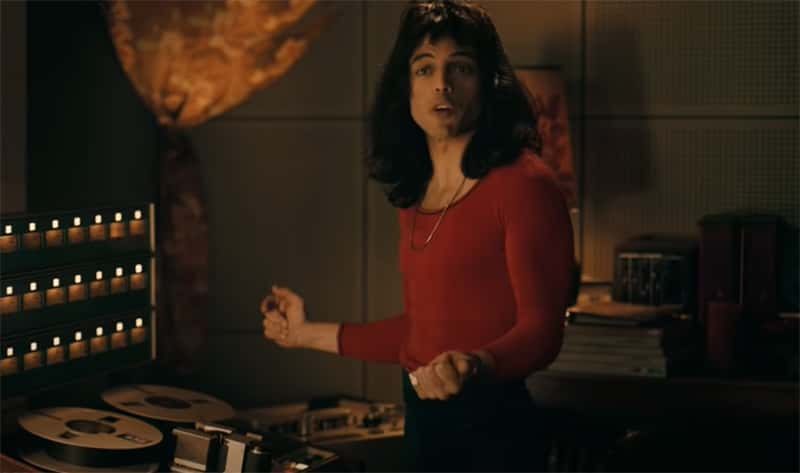 Bohemian Rhapsody (2018), Twentieth Century Fox
Bohemian Rhapsody (2018), Twentieth Century Fox
28. He Was Hiding Something
"Bohemian Rhapsody" was still at the top of the charts when 1975 became 1976. Sadly, personal turmoil tempered the triumph of such a huge hit for Mercury. He’d been engaged to Mary Austin for three years at this point—but Mercury was hiding a secret that was so much more scandalous than the meaning of a few song lyrics.
Mercury had been having an affair with a record exec named David Minns, and he couldn’t hide the truth about himself from Austin any longer.
29. They Faced The Facts
Despite the fact that the romantic side of their relationship had floundered, Austin was still Mercury’s best friend. It’s likely that he was terrified to tell her the truth about his sexuality—but luckily, he was in for a surprise. Though they broke up, the two still remained close friends, and Mercury even bought her a four-bedroom apartment near his home so that they could see each other whenever they wanted.
Unfortunately for Mercury, when he went looking for that same unconditional love with other romantic partners, he wouldn’t quite find it so easily.
30. He Let Loose
Mercury had kept up appearances and hid his affairs with men (to a certain extent) when he was still with Austin, but once their relationship ended, he jumped full force into the single life of a touring musician. While his bandmates would often look for the closest bar or club after a show, he’d travel to whatever neighborhood had the best gay bars and party until the sun came up.
However, with this lifestyle came some bad habits…
31. He Wanted It All
While out parting, Mercury would dabble with drug use, and especially throughout the 80s, he was known to always have certain white, powdery substances that were popular at the time handy. One friend claimed he spent $750 a week on the stuff. But behind all the heavy partying and promiscuity, Mercury still longed to find a loving long-term relationship.
He found it hard to balance the desire for both security and freedom, admitting, "I want to have my cake and eat it too". But most of the time, on the surface, he kept up his façade of pure swagger—as some came to find out the hard way.
32. He Inadvertently Drew Attention To Punk
In 1976, Mercury had a dental emergency that caused him and the band to miss a planned appearance on a talk show. Little did he know that he’d end up causing a bizarre side effect. Queen’s label, EMI, sent a new band to the show in their stead: the Pistols. The young punk band made an obscene scene on the show, prompting nation-wide condemnation and instant infamy.
But Mercury’s interaction with the punk band—or lack thereof—didn’t stop there.
33. He Had A Sharp Tongue
The Pistols weren’t exactly grateful for the opportunity. They loathed Queen’s image and stardom, while for his part, Mercury didn’t even consider what they made to be music. In 1977, the bands’ paths crossed at their mutual recording studio. While John Lydon (AKA Johnny Rotten) was actually polite when talking to Queen, Sid Vicious tried to outwit Mercury. Mercury’s reply was unforgettable.
He called Sid "Simon Ferocious," prompting a furious response, and went on his way. Still, he also had a soft side…
34. He Was A Cat Person
According to most everyone who knew him, Freddie Mercury was a fanatical cat person. At one point, he kept upwards of six cats in his home. With the exception of two cats people gave him as gifts, they were all rescues. Mercury treated the cats as if they were family. While he was on tour, he would call the house and have whoever was there put the phone up to the cats’ ears so they could hear his voice. Typical helicopter parent!
35. Someone Tried To Tear Them Apart
Many bands have to deal with dueling egos among their members, but Queen always remained remarkably balanced—that is, until they made the album Hot Space. It nearly destroyed the band—and the reason why was infuriating. In the early 80s, Mercury was contemplating reigniting his solo career and he began working with a manager named Paul Prenter.
He didn’t see it coming—but it was a brutal mistake.
36. He Was Under The Influence
Prenter’s attitude and behavior were like that of a bad music industry stereotype. Despite the fact that Queen had radio to thank for much of their success, Prenter seemed to try his best to alientate ever radio DJ they’d previously worked with. As if that wasn’t bad enough, he controlled Mercury and tried to push him away from the Queen band members, even restricting them from seeing the singer.
It was the band’s most tense period—and the fact that their popularity was waning stateside didn’t help either.
37. He Transformed
During this period, Mercury had changed his look in a big way, shedding his long locks and glam clothes for a short cut, big mustache, and tight duds. His look reflected a greater trend among gay men. While fans in the UK and Europe barely seemed to blink an eye—with some more amorous female fans straight-up ignoring all the signs—fair-weather fans in the US began to turn on the band the more that Mercury played up any hint of sexuality or campiness.
Sadly, the consequences were devastating.
38. They Gave Up
In 1982, Queen performed in the US for the last time. The disastrous recording of Hot Space and the reaction they faced left Mercury and the band exhausted, and they took some time off. Luckily, time heals (some) wounds, and nine months later, they returned to the studio refreshed and ready. However, their time dealing with backlash wasn’t quite over yet.
39. They Wanted To Break Free
Their next album featured the single "I Want To Break Free". For the video, Roger Taylor proposed that they all dress in drag as a parody of the long-running British soap Coronation Street. While the video was well-received in the UK, with many fans appreciating its tongue-in-cheek humor, the reaction in the US was chilling. While they didn’t outright announce it, behind the scenes, MTV banned the video. Just for a little cross-dressing.
It was seriously unnecessary—and was the final nail in the coffin for Queen’s relationship with the US. But that didn’t matter, because in the UK, they were absolutely golden.
40. He Was An A-Lister
Critics hailed Queen’s performance at the 1985 Live Aid concert at the highlight of the show, which was one of the most-watched TV broadcasts of all time. They were rock royalty…and Mercury had the friends to match. Actress Cleo Rocos introduced Mercury and Kenny Everett (the radio DJ who’d made "Bohemian Rhapsody" a hit) to Princess Diana—and they quickly discovered that she had a wild side.
41. He Snuck A Princess Into A Gay Bar
One night, the quartet were at Everett’s home when they came up with the idea to go dancing at a gay club. They figured that Diana would head home before they went—but they were wrong. She wanted to go to, and although Rocos and Everett warned her of the consequences should the authorities show up, Mercury said "Let the girl have some fun".
Everett gave Diana the ostentation outfit he’d planned on wearing—and with that, the most famous woman in the world got to go out incognito with Freddie Mercury and friends.
42. He Needed A Change Of Scenery
Princess Diana was basically the only star who could outshine Freddie Mercury at a London club in those days—and while he had a good time, the attention in that city grew to be a bit too much. In the mid-80s, Mercury moved temporarily to Munich, where he could still go out and have a good time while keeping a much lower profile.
Not that he always did—his lavish 39th birthday party there has gone down in infamy for its black & white drag dress code and pure excess. But then, just as quickly as he’d arrived, Mercury abandoned Munich. When he got back to London, he seemed a changed man…
43. He Had Some Serious Heartache
Mercury’s close friend Barbara Valentin remarked that after his stint in Munich, he was subdued, and seemed uninterested in the globe-trotting, hard-partying lifestyle he’d been living up until then. The sad reason why? Well, it’s entirely possible that it was heartbreak. While living in Germany, Mercury had been involved with restaurateur Winnie Kirchberger. It got serious, and Kirchberger even gave Mercury a silver wedding band.
It looks like things ended between the pair when Mercury left Germany—but he wouldn’t have to wait long to fall in love again.
44. He Met The Love Of His Life
One of Queen’s most beloved songs, "Love of My Life" was written by Mercury about Mary Austin. During live performances of the song, the audience would get so caught up in it that Mercury would often stop singing and let them take over. After his passing, the remaining band members would often dedicate the song to his memory when they performed it.
Austin would play a crucial role in the next few years of his life—as would another great love of his life, Jim Hutton.
45. He Settled Down
Freddie Mercury knew a good thing when he saw it—and when he first saw Jim Hutton, he tried to pick him up. Hutton, who had a boyfriend at the time, said no. But 18 months later, when they met again, sparks flew. They began dating, and within a year, Hutton had moved into Mercury’s London home, Garden Lodge.
It was the first time he’d really settled down since Mary Austin—but "settled down" is a relative term.
46. They Had Their Problems
In many ways, Freddie Mercury’s romance with Jim Hutton was a fairy tale. In other ways, it was a horror story. Remember that Mercury had, for the most part, been quite promiscuous (his words, not mine) when he was single. And, as we all know, old habits die hard. In the beginning of their relationship, Hutton would catch Mercury with other men at clubs and once, even at their home.
But Hutton was no shrinking violet—and he wasn’t about to take that kind of stuff sitting down.
47. He Told Him He Had To Make A Choice
With his physicality, confidence, and star status, Mercury could be intimidating—but ultimately he just wanted someone to treat him like a normal person. And that’s exactly what Hutton did when he told Mercury to "make his mind up". Mercury quietly agreed to the ultimatum—and the pair settled back into their lives together.
But while their home lives were mundane, Mercury still had a flair for the dramatic.
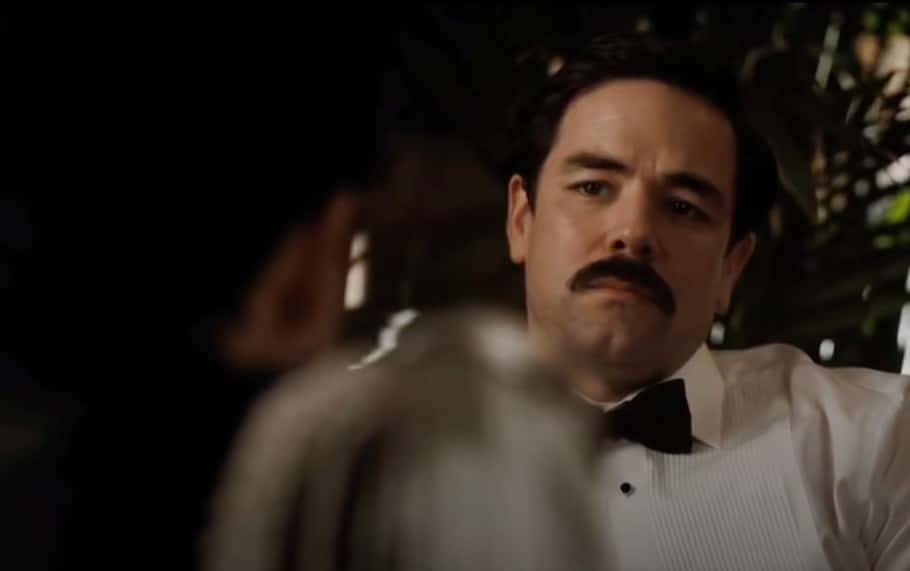 Bohemian Rhapsody (2018), Twentieth Century Fox
Bohemian Rhapsody (2018), Twentieth Century Fox
48. He Knew How To Throw A Party
Freddie Mercury’s epic 39th birthday party was nothing compared to the bash that he arranged for his 41st—which begs the question, what did he do on his 40th? Stay home and knit? Either way, Mercury’s 1987 party was so massive and wild that the hotel where he held it in Ibiza still celebrates his birthday annually to this day. For the party, Mercury flew 700 of his closest friends to the small Spanish island and had a cake made to look like the Sagrada Familia (which ultimately collapsed under its own weight).
49. He Wasn’t Well
The raucous party came not long after Queen’s Magic Tour. Little did any of them know that it would be Mercury’s last. While it may have seemed like Mercury and the band were sitting on top of the world, the singer was hiding a devastating secret. He was sick, and he had been sick for a while.
It was getting back enough that it was beginning to show, and rumors began to fly about Mercury’s health.
50. There Were Early Signs
While Mercury didn’t receive a definitive diagnosis for years, he began to see doctors about worrying symptoms. At the time, so little was known about HIV and AIDS that people still thought it was the "gay disease". While in the US at part of Queen’s final stateside performance, Mercury saw a doctor about a white lesion on his tongue—potentially an early symptom of an infection.
Still, Mercury appeared healthy on the outside, so no one had reason to talk—until 1986.
51. He Had To Deal With Vicious Rumors
In October of that year, the British press reported that Mercury had taken an AIDS/HIV test at a local clinic. In an interview, Mercury claimed that he’d tested negative—but within a year, those close to him began to worry. Mercury’s best friend in Munich, Barbara Valentin, visited him in 1987—and when she saw him, her heart sank to the floor.
52. She Knew When She Saw Him
Valentin had a cabal of gay friends—and sadly, had lost quite a few to AIDS. When she noticed dark patches on Mercury’s face, a symptom of Kaposi’s sarcoma, she knew exactly what was happening. Though they refused to confront the truth of it, Valentin helped him use makeup to cover the patches that night. From there, things began to take an even darker turn.
53. He Was In Terrible Pain
Eventually, the patches spread to the rest of Mercury’s body—but they weren’t simple discolorations. They were quite painful, and Mercury had to take medication just so that he wouldn’t be in constant agony. In April of 1987, doctors finally gave Mercury a definitive diagnosis. He had AIDS. And, as if that wasn’t bad enough, the famously private singer now had to share the news with his loved ones.
54. His Love Stood By Him
When Mercury told his partner Jim Hutton that he had AIDS, he said "I would understand if you wanted to pack your bags and leave". Hutton’s reply was so touching, it’s unforgettable. He vowed to stand Mercury and told him that he was in it for "the long haul". Hutton would ultimately deliver on this promise—but first, Mercury had to deal with the day-to-day tribulations of living with a horrific illness.
 Bohemian Rhapsody (2018), Twentieth Century Fox
Bohemian Rhapsody (2018), Twentieth Century Fox
55. He Lost Himself
It doesn’t take watching the YouTube video of Queen’s 1985 Live Aid set to know that Mercury possessed incredibly physicality and energy—but you could, and should, watch said video at your earliest convenience. As AIDS ravaged his body, Mercury grew gaunt, frail, and lost his vigor. His shocking appearance only served to fan the flames of the rumors about his health, but Mercury remained steadfastly private in the face of the stories.
56. He Faded Away
When asked about his health, Mercury would simply say that he’d calmed down a lot from his hard-partying days, and that it was all simply a matter of age taking its toll. After performing for his album Barcelona in 1988, Mercury largely disappeared from the public eye. When he did appear at the 1990 Brit Awards with Queen to accept the trophy for Outstanding Contribution to British Music, fans and critics alike were shocked.
Mercury was extremely gaunt and quiet, and May did most of the talking. It would sadly be his last ever appearance on stage.
57. He Had An A-List Collaboration
When Freddie Mercury met Michael Jackson, the two became fast friends. Jackson was a fan of Mercury and Mercury was incredibly impressed at Jackson’s longevity in the business. It seemed like a musical match made in heaven—but when the two went to collaborate, it blew up in their faces.
58. It Crashed And Burned
Mercury and Jackson recorded three demos together in the early 80s, but in 1987, when a writer asked Mercury about it, he gave a heartbreaking answer. Mercury evasively blamed the fact that the two stars were never being in the same country long enough and commented that Jackson had "retreated into his own little world". However, there seemed to be much more to the story.
59. Not Everyone Agreed With His Lifestyle
In one version of the story, Mercury grew frustrated that Jackson was bringing his pet llama to the studio every day. The truth may have been much darker. In another version, Jackson blew up at Mercury after catching him using illicit substances. Well, I guess what they say about meeting your heroes is true…
60. He Gave It His All
By the time the band made the album Innuendo, Mercury could barely walk. Still, he was committed to giving every he had to the songs he recorded, including the heartbreaking "The Show Must Go On". As May later said, he had no fear, and kept begging for more material to sing. The video for the song "These Are The Days Of Our Lives" was filmed in black and white to further conceal Mercury’s gaunt appearance.
It would be the last time that he was on camera.
61. He Finally Told The Truth
On November 23, 1991, Mercury released a statement that confirmed to the world that he did, indeed, have AIDS. But the short statement didn’t let on just how terrible his suffering was. Mercury was bedridden, had lost most of his sight, and had stopped taking his medication three weeks earlier, hoping to hasten the inevitable. Ultimately, he got his heartbreaking wish.
62. He Wasn’t Alone
In his final days, Mercury couldn’t leave his bed, but he told Hutton—with whom he’d exchanged wedding rings—that he wanted to go downstairs and see his collection of art. Hutton remembers that he hadn’t truly accepted just how bad Mercury’s physical state was until he carried him down the stairs. Hutton not only had to face the truth of that situation, but of his own potential fate as well—he’d received his HIV diagnosis just a year before.
But while he’d been there to take care of Mercury, Mercury sadly wouldn’t be able to repay the favor.
63. He Was With His Loved Ones At The End
Mercury had told them that his illness was terminal about a year before—but as his family remembers, even in that devastating moment, he worried more about how the news would affect them than he did about himself. Just 24 hours after he released his statement, Mercury succumbed to bronchial pneumonia resulting from AIDS at his home in Kensington. He was only 45 years old.
Those closest to him were there at the end, including Jim Hutton and Mary Austin. In fact, it was Austin who called Mercury’s parents and sister to break the news to them. And Mercury’s story didn’t end there…
64. He Did Things His Own Way
After the truth about Mercury’s AIDS diagnosis finally came out, some groups criticized him posthumously for not sharing it with the world, saying that he could’ve helped a lot of people. But those people forget that, in the late 80s, Mercury encouraged young men to get tested for AIDS and emphasized the importance of safe intimacy. Mercury knew his boundaries and believed he had a right to privacy—but there may have been another, even more heartbreaking reason for his secrecy.
65. He Was Secretly Devout
Mercury was raised in the Zoroastrian religion by his parents, and his funeral was performed by a Zoroastrian priest. Many people believe that some passages from Zoroastrian books could be interpreted to say that homosexuality is a form of demon worship. Mercury never discussed his sexuality with his parents—and its entirely possible that their shared religion was the reason.
Of course, there were also other factors at play…
66. He Remained Private To The End
The world had been lucky that Freddie Mercury spent the prime years of his life sharing himself with them—but his desire for privacy prevailed even after his passing. His funeral was small and private. And that’s not all. After his body was cremated, his ashes were kept in an urn by his lifelong friend, Mary Austin. Two years later, Austin quietly left her house with the urn, fulfilling Mercury’s wishes to be covertly laid to rest without risk of disturbance.
Not even his parents were told, and Austin has kept the secret of where the star’s final resting is to this day.
67. She Shared Her Pain
Mary Austin kept Freddie Mercury’s secrets and she rarely, if ever, talked about him or their relationship. However, after she lost him, she did share one heartbreaking statement. She said: "I feel a great sense of loss and pain and I am sure there are lots of fans who share that loss. I never ever stopped loving Freddie and I don’t think he ever stopped loving me".
She was absolutely right, as Mercury once said in 1985, "The only friend I've got is Mary, and I don't want anybody else". While he left money to a number of friends and family, including Jim Hutton, he left most of his estate to her, as well as his beloved Kensington home.
Sources: 1, 2, 3, 4, 5, 6, 7, 8, 9, 10, 11, 12, 13, 14, 15, 16, 17, 18, 19, 20, 21, 22, 23, 24

